419 papers:
 CASE-2015-GiulianiC #optimisation #problem
CASE-2015-GiulianiC #optimisation #problem- Derivative-free optimization with use of problem structure: Applications to oil production (CMG, EC), pp. 764–768.
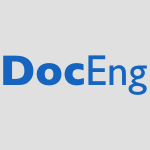 DocEng-2015-MarriottSW #automation #documentation #editing #named #visual notation
DocEng-2015-MarriottSW #automation #documentation #editing #named #visual notation- VEDD: A Visual Editor for Creation and Semi-Automatic Update of Derived Documents (KM, MS, MW), pp. 125–128.
 ITiCSE-2015-ChaudhariD #formal method
ITiCSE-2015-ChaudhariD #formal method- Introducing Formal Methods via Program Derivation (DLC, OPD), pp. 266–271.
 PLDI-2015-FaddegonC #algorithm #debugging #dependence #haskell #source code #stack
PLDI-2015-FaddegonC #algorithm #debugging #dependence #haskell #source code #stack- Algorithmic debugging of real-world haskell programs: deriving dependencies from the cost centre stack (MF, OC), pp. 33–42.
 CIAA-2015-BrodaCFM #algebra
CIAA-2015-BrodaCFM #algebra- Deciding Synchronous Kleene Algebra with Derivatives (SB, SC, MF, NM), pp. 49–62.
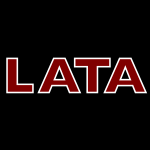 LATA-2015-SulzmannT
LATA-2015-SulzmannT- Derivatives for Regular Shuffle Expressions (MS, PT), pp. 275–286.
 LATA-2015-ThiemannS #automaton #regular expression
LATA-2015-ThiemannS #automaton #regular expression- From ω-Regular Expressions to Büchi Automata via Partial Derivatives (PT, MS), pp. 287–298.
 HCI-IT-2015-PoirierB #named
HCI-IT-2015-PoirierB #named- UniWatch — Some Approaches Derived from UniGlyph to Allow Text Input on Tiny Devices Such as Connected Watches (FP, MB), pp. 554–562.
 CAiSE-2015-WeiBO #interface #web #web service
CAiSE-2015-WeiBO #interface #web #web service- Deriving Artefact-Centric Interfaces for Overloaded Web Services (FW, AB, CO), pp. 501–516.
 ICEIS-v2-2015-CruzMS #modelling #process #set
ICEIS-v2-2015-CruzMS #modelling #process #set- Deriving a Data Model from a Set of Interrelated Business Process Models (EFC, RJM, MYS), pp. 49–59.
 MoDELS-2015-HolldoblerRW #model transformation
MoDELS-2015-HolldoblerRW #model transformation- Systematically deriving domain-specific transformation languages (KH, BR, IW), pp. 136–145.
 Onward-2015-GreweEWM #performance #proving #type system
Onward-2015-GreweEWM #performance #proving #type system- Type systems for the masses: deriving soundness proofs and efficient checkers (SG, SE, PW, MM), pp. 137–150.
 SAC-2015-VilelaCPSCL #behaviour #modelling
SAC-2015-VilelaCPSCL #behaviour #modelling- Deriving the behavior of context-sensitive systems from contextual goal models (JV, JBdC, JP, MS, PC, ML), pp. 1397–1400.
 ESEC-FSE-2015-FuLB #analysis #automation #memory dump #memory management #pointer
ESEC-FSE-2015-FuLB #analysis #automation #memory dump #memory management #pointer- Automatically deriving pointer reference expressions from binary code for memory dump analysis (YF, ZL, DB), pp. 614–624.
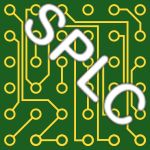 SPLC-2015-FangLDEZ #automation #industrial #modelling #towards
SPLC-2015-FangLDEZ #automation #industrial #modelling #towards- Towards model-based derivation of systems in the industrial automation domain (MF, GL, JD, CE, JZ), pp. 283–292.
 SPLC-2015-FilhoABAB #empirical #java #product line #source code
SPLC-2015-FilhoABAB #empirical #java #product line #source code- Assessing product line derivation operators applied to Java source code: an empirical study (JBFF, SA, OB, MA, BB), pp. 36–45.
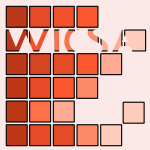 WICSA-2014-SeriaiSSH #component #interface #legacy
WICSA-2014-SeriaiSSH #component #interface #legacy- Deriving Component Interfaces after a Restructuring of a Legacy System (AS, SS, HAS, SH), pp. 31–40.
 ESOP-2014-PoulsenM #semantics
ESOP-2014-PoulsenM #semantics- Deriving Pretty-Big-Step Semantics from Small-Step Semantics (CBP, PDM), pp. 270–289.
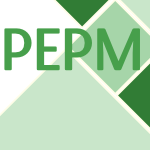 PEPM-J-2013-Simon14 #type inference #using
PEPM-J-2013-Simon14 #type inference #using- Deriving a complete type inference for Hindley-Milner and vector sizes using expansion (AS), pp. 254–271.
 PEPM-2014-Garcia-PerezNS #λ-calculus
PEPM-2014-Garcia-PerezNS #λ-calculus- Deriving interpretations of the gradually-typed λ calculus (ÁGP, PN, IS), pp. 157–168.
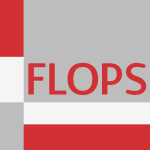 FLOPS-2014-SulzmannL #parsing #regular expression
FLOPS-2014-SulzmannL #parsing #regular expression- POSIX Regular Expression Parsing with Derivatives (MS, KZML), pp. 203–220.
 CIAA-2014-MaiaMR #automaton #similarity
CIAA-2014-MaiaMR #automaton #similarity- Partial Derivative and Position Bisimilarity Automata (EM, NM, RR), pp. 264–277.
 ILC-2014-Nunes-Harwitt #compilation #prolog
ILC-2014-Nunes-Harwitt #compilation #prolog- From Naïve to Norvig On Deriving a PROLOG Compiler (ANH), p. 70.
 ICGT-2014-CorradiniH #canonical
ICGT-2014-CorradiniH #canonical- Canonical Derivations with Negative Application Conditions (AC, RH), pp. 207–221.
 ICEIS-v1-2014-HenriquesA #database #generative #modelling #sequence
ICEIS-v1-2014-HenriquesA #database #generative #modelling #sequence- Generative Modeling of Itemset Sequences Derived from Real Databases (RH, CA), pp. 264–272.
 ICEIS-v3-2014-BarrosFSA #approach #towards
ICEIS-v3-2014-BarrosFSA #approach #towards- Deriving Service Level Agreements from Business Level Agreements — An Approach Towards Strategic Alignment in Organizations (VAB, MF, GMBS, JPdA), pp. 214–225.
 ICPR-2014-JainCL #image
ICPR-2014-JainCL #image- Local Binary Patterns Calculated over Gaussian Derivative Images (VJ, JLC, AL), pp. 3987–3992.
 RecSys-2014-BadenesBCGHMNPSSXYZ #automation #people #recommendation #social #social media
RecSys-2014-BadenesBCGHMNPSSXYZ #automation #people #recommendation #social #social media- System U: automatically deriving personality traits from social media for people recommendation (HB, MNB, JC, LG, EMH, JM, JWN, AP, JS, BAS, YX, HY, MXZ), pp. 373–374.
 SEKE-2014-BarreirosM #flexibility #modelling #product line
SEKE-2014-BarreirosM #flexibility #modelling #product line- Flexible Modeling and Product Derivation in Software Product Lines (JB, AMDM), pp. 67–70.
 RE-2014-MartinsO #analysis #case study #fault #functional #protocol #requirements #safety #using
RE-2014-MartinsO #analysis #case study #fault #functional #protocol #requirements #safety #using- A case study using a protocol to derive safety functional requirements from Fault Tree Analysis (LEGM, TdO), pp. 412–419.
 SAC-2014-LoulergueRTLH #parallel #problem
SAC-2014-LoulergueRTLH #parallel #problem- Formal derivation and extraction of a parallel program for the all nearest smaller values problem (FL, SR, JT, JL, ZH), pp. 1577–1584.
 SPLC-2014-YuZZJ #automation #case study #feature model #named
SPLC-2014-YuZZJ #automation #case study #feature model #named- TDL: a transformation description language from feature model to use case for automated use case derivation (WY, WZ, HZ, ZJ), pp. 187–196.
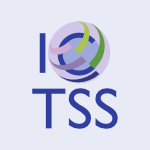 ICTSS-2014-SamihGBAB #approach #modelling #testing
ICTSS-2014-SamihGBAB #approach #modelling #testing- An Approach to Derive Usage Models Variants for Model-Based Testing (HS, HLG, RB, MA, BB), pp. 80–96.
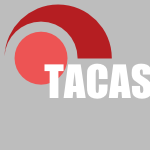 TACAS-2013-BhatBGR #functional #probability #source code
TACAS-2013-BhatBGR #functional #probability #source code- Deriving Probability Density Functions from Probabilistic Functional Programs (SB, JB, ADG, CVR), pp. 508–522.
 PEPM-2013-Simon #type inference #using
PEPM-2013-Simon #type inference #using- Deriving a complete type inference for hindley-milner and vector sizes using expansion (AS), pp. 13–22.
 STOC-2013-Sherstov #bound #communication #using
STOC-2013-Sherstov #bound #communication #using- Communication lower bounds using directional derivatives (AAS), pp. 921–930.
 LATA-2013-ChamparnaudDJM #regular expression
LATA-2013-ChamparnaudDJM #regular expression- Two-Sided Derivatives for Regular Expressions and for Hairpin Expressions (JMC, JPD, HJ, LM), pp. 202–213.
 ICFP-2013-TraytelN #regular expression #word
ICFP-2013-TraytelN #regular expression #word- Verified decision procedures for MSO on words based on derivatives of regular expressions (DT, TN), pp. 3–12.
 GCM-J-2012-Flick #graph grammar
GCM-J-2012-Flick #graph grammar- Derivation Languages of Graph Grammars (NEF).
 ICEIS-v1-2013-KozminaNG #concept #requirements
ICEIS-v1-2013-KozminaNG #concept #requirements- Deriving the Conceptual Model of a Data Warehouse from Information Requirements (NK, LN, MG), pp. 136–144.
 ICEIS-v3-2013-AhmadO #approach #architecture #enterprise #process #semantics
ICEIS-v3-2013-AhmadO #approach #architecture #enterprise #process #semantics- A New Approach to Semantically Derive Enterprise Information Architecture from Business Process Architecture (MA, MO), pp. 363–369.
 ICML-c3-2013-BroderickKJ #named
ICML-c3-2013-BroderickKJ #named- MAD-Bayes: MAP-based Asymptotic Derivations from Bayes (TB, BK, MIJ), pp. 226–234.
 KDIR-KMIS-2013-CheetiSC #adaptation #approach #classification #naive bayes #sentiment #syntax #using
KDIR-KMIS-2013-CheetiSC #adaptation #approach #classification #naive bayes #sentiment #syntax #using- Cross-domain Sentiment Classification using an Adapted Naïve Bayes Approach and Features Derived from Syntax Trees (SC, AS, DC), pp. 169–176.
 MoDELS-2013-Gonzalez-HuertaIA #approach #architecture #multi #validation
MoDELS-2013-Gonzalez-HuertaIA #approach #architecture #multi #validation- Defining and Validating a Multimodel Approach for Product Architecture Derivation and Improvement (JGH, EI, SA), pp. 388–404.
 MoDELS-2013-SemerathHV #constraints #domain-specific language #graph #query #validation
MoDELS-2013-SemerathHV #constraints #domain-specific language #graph #query #validation- Validation of Derived Features and Well-Formedness Constraints in DSLs — By Mapping Graph Queries to an SMT-Solver (OS, ÁH, DV), pp. 538–554.
 MoDELS-2013-Gonzalez-HuertaIA #approach #architecture #multi #validation
MoDELS-2013-Gonzalez-HuertaIA #approach #architecture #multi #validation- Defining and Validating a Multimodel Approach for Product Architecture Derivation and Improvement (JGH, EI, SA), pp. 388–404.
 MoDELS-2013-SemerathHV #constraints #domain-specific language #graph #query #validation
MoDELS-2013-SemerathHV #constraints #domain-specific language #graph #query #validation- Validation of Derived Features and Well-Formedness Constraints in DSLs — By Mapping Graph Queries to an SMT-Solver (OS, ÁH, DV), pp. 538–554.
 PPDP-2013-Garcia-PerezNM #order #semantics
PPDP-2013-Garcia-PerezNM #order #semantics- Deriving the full-reducing Krivine machine from the small-step operational semantics of normal order (ÁGP, PN, JJMN), pp. 85–96.
 SAC-2013-FanYZ #architecture #framework #modelling #scalability
SAC-2013-FanYZ #architecture #framework #modelling #scalability- A generic framework for deriving architecture modeling methods for large-scale software-intensive systems (ZF, TY, LZ), pp. 1750–1757.
 SAC-2013-TranLZ #architecture #metadata #security
SAC-2013-TranLZ #architecture #metadata #security- Derivation of domain-specific architectural knowledge views from governance and security compliance metadata (HT, IL, UZ), pp. 1728–1733.
 SPLC-2013-ClementsKSW #strict
SPLC-2013-ClementsKSW #strict- A PLE-based auditing method for protecting restricted content in derived products (PCC, CWK, JS, AW), pp. 218–226.
 CASE-2012-WimbockRC #coordination #verification
CASE-2012-WimbockRC #coordination #verification- Derivation and verification of synergy coordinates for the DLR hand arm system (TW, JR, MC), pp. 454–460.
 DocEng-2012-PenadesGC #documentation #feature model #modelling #workflow
DocEng-2012-PenadesGC #documentation #feature model #modelling #workflow- Deriving document workflows from feature models (MdCP, AG, JHC), pp. 237–240.
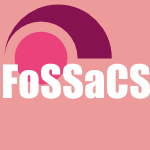 FoSSaCS-2012-HulsbuschK #bisimulation
FoSSaCS-2012-HulsbuschK #bisimulation- Deriving Bisimulation Congruences for Conditional Reactive Systems (MH, BK), pp. 361–375.
 ICPC-2012-FeigenspanBR #question
ICPC-2012-FeigenspanBR #question- Is the derivation of a model easier to understand than the model itself? (JF, DSB, TLR), pp. 47–52.
 ICSM-2012-HigoK #consistency #detection #how #nondeterminism
ICSM-2012-HigoK #consistency #detection #how #nondeterminism- How often do unintended inconsistencies happen? Deriving modification patterns and detecting overlooked code fragments (YH, SK), pp. 222–231.
 DLT-J-2011-BrodaMMR12 #automaton #on the
DLT-J-2011-BrodaMMR12 #automaton #on the- On the Average Size of Glushkov and Partial derivative Automata (SB, AM, NM, RR), pp. 969–984.
 CIAA-2012-CaronCM #multi
CIAA-2012-CaronCM #multi- Multi-Tilde-Bar Derivatives (PC, JMC, LM), pp. 321–328.
 DLT-2012-BuchseMV #semantics
DLT-2012-BuchseMV #semantics- Unidirectional Derivation Semantics for Synchronous Tree-Adjoining Grammars (MB, AM, HV), pp. 368–379.
 DLT-2012-HolzerJM #context-free grammar
DLT-2012-HolzerJM #context-free grammar- Generalized Derivations with Synchronized Context-Free Grammars (MH, SJ, IM), pp. 109–120.
 LATA-2012-ChamparnaudJM #approximate #regular expression
LATA-2012-ChamparnaudJM #approximate #regular expression- Approximate Regular Expressions and Their Derivatives (JMC, HJ, LM), pp. 179–191.
 CAiSE-2012-Guizzardi #ontology
CAiSE-2012-Guizzardi #ontology- Ontological Meta-properties of Derived Object Types (GG), pp. 318–333.
 ICPR-2012-YaoKK #artificial reality
ICPR-2012-YaoKK #artificial reality- Shading derivation from an unspecified object for augmented reality (YY, HK, AK), pp. 57–60.
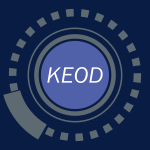 KEOD-2012-BachaZ12a #design #education
KEOD-2012-BachaZ12a #design #education- Designing a Model of Arabic Derivation, for Use in Computer Assisted Teaching (KB, MZ), pp. 352–356.
 ECMFA-2012-RathHV #emf #query
ECMFA-2012-RathHV #emf #query- Derived Features for EMF by Integrating Advanced Model Queries (IR, ÁH, DV), pp. 102–117.
 GPCE-2012-RysselPK #feature model #modelling #reasoning
GPCE-2012-RysselPK #feature model #modelling #reasoning- Reasoning of feature models from derived features (UR, JP, KK), pp. 21–30.
 PPDP-2012-SulzmannL #regular expression #using
PPDP-2012-SulzmannL #regular expression #using- Regular expression sub-matching using partial derivatives (MS, KZML), pp. 79–90.
 ICSE-2012-Westermann #developer #feedback #performance
ICSE-2012-Westermann #developer #feedback #performance- A generic methodology to derive domain-specific performance feedback for developers (DW), pp. 1527–1530.
 SPLC-2012-Elsner #staged #tool support
SPLC-2012-Elsner #staged #tool support- Light-weight tool support for staged product derivation (CE), pp. 146–155.
 ICLP-2012-Tarau #performance
ICLP-2012-Tarau #performance- Deriving a Fast Inverse of the Generalized Cantor N-tupling Bijection (PT), pp. 312–322.
 ECSA-2011-MullerKG #architecture
ECSA-2011-MullerKG #architecture- A Question-Based Method for Deriving Software Architectures (MM, BK, MG), pp. 35–42.
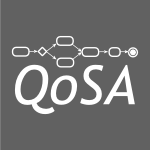 QoSA-ISARCS-2011-HauckKHR #framework #named
QoSA-ISARCS-2011-HauckKHR #framework #named- Ginpex: deriving performance-relevant infrastructure properties through goal-oriented experiments (MH, MK, NH, RHR), pp. 53–62.
 ASE-2011-ChakrabortyS #approach #framework #towards
ASE-2011-ChakrabortyS #approach #framework #towards- Towards an approach and framework for test-execution plan derivation (SSC, VS), pp. 488–491.
 DAC-2011-WangXAP #classification #learning #policy #power management #using
DAC-2011-WangXAP #classification #learning #policy #power management #using- Deriving a near-optimal power management policy using model-free reinforcement learning and Bayesian classification (YW, QX, ACA, MP), pp. 41–46.
 ICDAR-2011-AtanasiuLV #novel #retrieval #using
ICDAR-2011-AtanasiuLV #novel #retrieval #using- Writer Retrieval — Exploration of a Novel Biometric Scenario Using Perceptual Features Derived from Script Orientation (VA, LLS, NV), pp. 628–632.
 FoSSaCS-2011-AristizabalBPPV #concurrent #constraints #programming #similarity
FoSSaCS-2011-AristizabalBPPV #concurrent #constraints #programming #similarity- Deriving Labels and Bisimilarity for Concurrent Constraint Programming (AA, FB, CP, LFP, FDV), pp. 138–152.
 DLT-J-2010-BrodaMMR11 #approach #automaton #combinator #complexity #on the
DLT-J-2010-BrodaMMR11 #approach #automaton #combinator #complexity #on the- On the Average State Complexity of Partial derivative Automata: an analytic Combinatorics Approach (SB, AM, NM, RR), pp. 1593–1606.
 DLT-2011-BrodaMMR #automaton #complexity
DLT-2011-BrodaMMR #automaton #complexity- The Average Transition Complexity of Glushkov and Partial Derivative Automata (SB, AM, NM, RR), pp. 93–104.
 LATA-2011-CaronCM #regular expression
LATA-2011-CaronCM #regular expression- Partial Derivatives of an Extended Regular Expression (PC, JMC, LM), pp. 179–191.
 ICFP-2011-GillF #fault #implementation #performance
ICFP-2011-GillF #fault #implementation #performance- Deriving an efficient FPGA implementation of a low density parity check forward error corrector (AG, AF), pp. 209–220.
 ICFP-2011-MightDS #functional #parsing
ICFP-2011-MightDS #functional #parsing- Parsing with derivatives: a functional pearl (MM, DD, DS), pp. 189–195.
 IDGD-2011-BrandND #embedded #interactive #network #social #using
IDGD-2011-BrandND #embedded #interactive #network #social #using- Using Embedded Technology Badges to Derive Social Networks, Patterns of Interaction and Space Utilization in a Corporate Headquarters (JLB, GN, HD), pp. 353–360.
 MoDELS-2011-RamirezC #automation #monitoring #requirements
MoDELS-2011-RamirezC #automation #monitoring #requirements- Automatic Derivation of Utility Functions for Monitoring Software Requirements (AJR, BHCC), pp. 501–516.
 MoDELS-2011-RamirezC #automation #monitoring #requirements
MoDELS-2011-RamirezC #automation #monitoring #requirements- Automatic Derivation of Utility Functions for Monitoring Software Requirements (AJR, BHCC), pp. 501–516.
 GPCE-2011-Launchbury
GPCE-2011-Launchbury- Theorem-based circuit derivation in cryptol (JL), pp. 185–186.
 ICSE-2011-DumitruGHCMCM #mining #on-demand #recommendation
ICSE-2011-DumitruGHCMCM #mining #on-demand #recommendation- On-demand feature recommendations derived from mining public product descriptions (HD, MG, NH, JCH, BM, CCH, MM), pp. 181–190.
 SPLC-2011-ChenE #optimisation #process
SPLC-2011-ChenE #optimisation #process- Optimizing the Product Derivation Process (SC, ME), pp. 35–44.
 SPLC-2011-TawhidP #automation #performance #product line
SPLC-2011-TawhidP #automation #performance #product line- Automatic Derivation of a Product Performance Model from a Software Product Line Model (RT, DCP), pp. 80–89.
 CSL-2011-KomendantskayaP #algebra #logic programming
CSL-2011-KomendantskayaP #algebra #logic programming- Coalgebraic Derivations in Logic Programming (EK, JP), pp. 352–366.
 CSL-2011-SchnablS #complexity #runtime
CSL-2011-SchnablS #complexity #runtime- The Exact Hardness of Deciding Derivational and Runtime Complexity (AS, JGS), pp. 481–495.
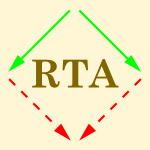 RTA-2011-MoserS #complexity #dependence #framework #multi #proving #recursion #termination
RTA-2011-MoserS #complexity #dependence #framework #multi #proving #recursion #termination- Termination Proofs in the Dependency Pair Framework May Induce Multiple Recursive Derivational Complexity (GM, AS), pp. 235–250.
 SAT-2011-IgnatievS #encryption
SAT-2011-IgnatievS #encryption- DPLL+ROBDD Derivation Applied to Inversion of Some Cryptographic Functions (AI, AS), pp. 76–89.
 ASE-2010-GabrysiakGS #behaviour #interactive #multi #process #requirements #validation
ASE-2010-GabrysiakGS #behaviour #interactive #multi #process #requirements #validation- Deriving behavior of multi-user processes from interactive requirements validation (GG, HG, AS), pp. 355–356.
 ASE-2010-Green #implementation #specification
ASE-2010-Green #implementation #specification- Keynote address: the actual implementation will be derived from the formal specification — KBSA, 1983 (CG), pp. 183–184.
 DAC-2010-HelinskiAP #evaluation #metric #physics #quality
DAC-2010-HelinskiAP #evaluation #metric #physics #quality- Quality metric evaluation of a physical unclonable function derived from an IC’s power distribution system (RH, DA, JP), pp. 240–243.
 DAC-2010-SingheeC
DAC-2010-SingheeC- Pareto sampling: choosing the right weights by derivative pursuit (AS, PC), pp. 913–916.
 DATE-2010-RaffelsieperMS #library
DATE-2010-RaffelsieperMS #library- Checking and deriving module paths in Verilog cell library descriptions (MR, MRM, CWHS), pp. 1506–1511.
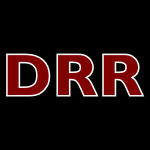 DRR-2010-ChenMT #automation #performance #using #validation #word
DRR-2010-ChenMT #automation #performance #using #validation #word- Efficient automatic OCR word validation using word partial format derivation and language model (SC, DM, GRT), pp. 1–10.
 TACAS-2010-Belinfante #execution #modelling #named #online
TACAS-2010-Belinfante #execution #modelling #named #online- JTorX: A Tool for On-Line Model-Driven Test Derivation and Execution (AB), pp. 266–270.
 ICSM-2010-AlvesYV #benchmark #metric
ICSM-2010-AlvesYV #benchmark #metric- Deriving metric thresholds from benchmark data (TLA, CY, JV), pp. 1–10.
 SCAM-2010-AllierVDS #graph #metric
SCAM-2010-AllierVDS #graph #metric- Deriving Coupling Metrics from Call Graphs (SA, SV, BD, HAS), pp. 43–52.
 WCRE-2010-Guerrouj #analysis #automation #concept #identifier #source code
WCRE-2010-Guerrouj #analysis #automation #concept #identifier #source code- Automatic Derivation of Concepts Based on the Analysis of Source Code Identifiers (LG), pp. 301–304.
 SAS-2010-AmatoPS #abstract domain #analysis #component
SAS-2010-AmatoPS #abstract domain #analysis #component- Deriving Numerical Abstract Domains via Principal Component Analysis (GA, MP, FS), pp. 134–150.
 DLT-J-2008-Csuhaj-VarjuDV10
DLT-J-2008-Csuhaj-VarjuDV10- Variants of Competence-Based Derivations in CD Grammar Systems (ECV, JD, GV), pp. 549–569.
 CIAA-2010-AlmeidaMPS #automaton #coq
CIAA-2010-AlmeidaMPS #automaton #coq- Partial Derivative Automata Formalized in Coq (JBA, NM, DP, SMdS), pp. 59–68.
 DLT-2010-BrodaMMR #automaton #on the
DLT-2010-BrodaMMR #automaton #on the- On the Average Number of States of Partial Derivative Automata (SB, AM, NM, RR), pp. 112–123.
 IFL-2010-SieczkowskiBB #automation #automaton #coq #formal method #reduction #semantics
IFL-2010-SieczkowskiBB #automation #automaton #coq #formal method #reduction #semantics- Automating Derivations of Abstract Machines from Reduction Semantics: — A Generic Formalization of Refocusing in Coq (FS, MB, DB), pp. 72–88.
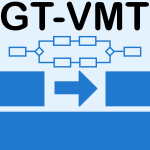 GT-VMT-2010-HermannCEK #analysis #equivalence #graph #performance #permutation #petri net
GT-VMT-2010-HermannCEK #analysis #equivalence #graph #performance #permutation #petri net- Efficient Analysis of Permutation Equivalence of Graph Derivations Based on Petri Nets (FH, AC, HE, BK).
 ICPR-2010-MochizukiKISI #energy
ICPR-2010-MochizukiKISI #energy- An Iterative Method for Superresolution of Optical Flow Derived by Energy Minimisation (YM, YK, AI, TS, TI), pp. 2270–2273.
 ICPR-2010-SeppkeDHW #equation #multi #parametricity #performance #using
ICPR-2010-SeppkeDHW #equation #multi #parametricity #performance #using- Fast Derivation of Soil Surface Roughness Parameters Using Multi-band SAR Imagery and the Integral Equation Model (BS, LSDF, JAH, FW), pp. 3931–3934.
 ICPR-2010-ShobeirinejadG #classification #gender #using
ICPR-2010-ShobeirinejadG #classification #gender #using- Gender Classification Using Interlaced Derivative Patterns (AS, YG), pp. 1509–1512.
 ICPR-2010-ZhaoGC #higher-order #image #recognition #representation
ICPR-2010-ZhaoGC #higher-order #image #recognition #representation- High-Order Circular Derivative Pattern for Image Representation and Recognition (SZ, YG, TC), pp. 2246–2249.
 KEOD-2010-Metke-JimenezRM #comparison #framework #ontology #wiki
KEOD-2010-Metke-JimenezRM #comparison #framework #ontology #wiki- Ontologies Derived from Wikipedia — A Framework for Comparison (AMJ, KR, IM), pp. 382–387.
 SEKE-2010-AbranAC #maintenance #metric #requirements
SEKE-2010-AbranAC #maintenance #metric #requirements- Measurement Model of Software Requirements Derived from System Maintainability Requirements (AA, KTAS, JJCG), pp. 153–158.
 PPDP-2010-AsaiK #continuation #functional #virtual machine
PPDP-2010-AsaiK #continuation #functional #virtual machine- Functional derivation of a virtual machine for delimited continuations (KA, AK), pp. 87–98.
 PPDP-2010-LiangK #datalog #statistics
PPDP-2010-LiangK #datalog #statistics- Deriving predicate statistics in datalog (SL, MK), pp. 45–56.
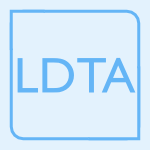 LDTA-2010-HoldermansH #on the #program transformation #type system
LDTA-2010-HoldermansH #on the #program transformation #type system- On the rôle of minimal typing derivations in type-driven program transformation (SH, JH), p. 2.
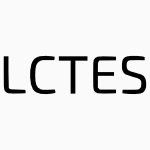 LCTES-2010-SchlicklingP #analysis #automation #modelling
LCTES-2010-SchlicklingP #analysis #automation #modelling- Semi-automatic derivation of timing models for WCET analysis (MS, MP), pp. 67–76.
 VMCAI-2010-JungKWY #abstraction #algorithm #invariant #learning
VMCAI-2010-JungKWY #abstraction #algorithm #invariant #learning- Deriving Invariants by Algorithmic Learning, Decision Procedures, and Predicate Abstraction (YJ, SK, BYW, KY), pp. 180–196.
 DocEng-2009-KohK #documentation
DocEng-2009-KohK #documentation- Deriving image-text document surrogates to optimize cognition (EK, AK), pp. 84–93.
 PEPM-2009-PardoFS #higher-order #monad #source code
PEPM-2009-PardoFS #higher-order #monad #source code- Shortcut fusion rules for the derivation of circular and higher-order monadic programs (AP, JPF, JS), pp. 81–90.
 CIAA-2009-SuzukiO
CIAA-2009-SuzukiO- Hedge Pattern Partial Derivative (TS, SO), pp. 125–134.
 CAiSE-2009-SommervilleLSD #modelling #requirements
CAiSE-2009-SommervilleLSD #modelling #requirements- Deriving Information Requirements from Responsibility Models (IS, RL, TS, JD), pp. 515–529.
 ICEIS-DISI-2009-CiriloKL #automation #enterprise #web
ICEIS-DISI-2009-CiriloKL #automation #enterprise #web- Automatic Derivation of Spring-OSGi based Web Enterprise Applications (EC, UK, CJPdL), pp. 228–233.
 ICEIS-ISAS-2009-WangWWL #canonical #modelling #process
ICEIS-ISAS-2009-WangWWL #canonical #modelling #process- Deriving Canonical Business Object Operation Nets from Process Models (ZW, JW, LW, YL), pp. 182–187.
 CIKM-2009-BalachandranPK #clustering #configuration management #dataset #documentation
CIKM-2009-BalachandranPK #clustering #configuration management #dataset #documentation- Interpretable and reconfigurable clustering of document datasets by deriving word-based rules (VB, DP, DK), pp. 1773–1776.
 KDIR-2009-TsakonasD #estimation #modelling #programming #search-based
KDIR-2009-TsakonasD #estimation #modelling #programming #search-based- Deriving Models for Software Project Effort Estimation by Means of Genetic Programming (AT, GD), pp. 34–42.
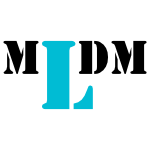 MLDM-2009-SarmentoKOU #clustering #performance #set
MLDM-2009-SarmentoKOU #clustering #performance #set- Efficient Clustering of Web-Derived Data Sets (LS, AK, ECO, LHU), pp. 398–412.
 SIGIR-2009-CanCGJKRRSSUW #detection #web
SIGIR-2009-CanCGJKRRSSUW #detection #web- Web derived pronunciations for spoken term detection (DC, EC, AG, MJ, SK, BR, MR, MS, AS, MU, CMW), pp. 83–90.
 SIGIR-2009-PascaA #concept #information retrieval #web
SIGIR-2009-PascaA #concept #information retrieval #web- Web-derived resources for web information retrieval: from conceptual hierarchies to attribute hierarchies (MP, EA), pp. 596–603.
 ECMDA-FA-2009-HeidenreichJKSW #modelling #refinement #syntax
ECMDA-FA-2009-HeidenreichJKSW #modelling #refinement #syntax- Derivation and Refinement of Textual Syntax for Models (FH, JJ, SK, MS, CW), pp. 114–129.
 SAC-2009-CiriloNKNL #automation #multi #product line
SAC-2009-CiriloNKNL #automation #multi #product line- Automatic product derivation of multi-agent systems product lines (EC, IN, UK, CN, CJPdL), pp. 731–732.
 SAC-2009-WangDLL #performance #process
SAC-2009-WangDLL #performance #process- An efficient and accurate lattice for pricing derivatives under a jump-diffusion process (CJW, TSD, YDL, YCL), pp. 966–970.
 SPLC-2009-OLearyRRT #case study #experience #independence #process #research
SPLC-2009-OLearyRRT #case study #experience #independence #process #research- Important issues and key activities in product derivation: experiences from two independent research projects (PO, RR, IR, ST), pp. 121–130.
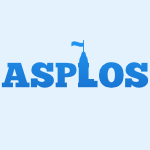 ASPLOS-2009-MenonSZ #automation #named #network #performance
ASPLOS-2009-MenonSZ #automation #named #network #performance- TwinDrivers: semi-automatic derivation of fast and safe hypervisor network drivers from guest OS drivers (AM, SS, WZ), pp. 301–312.
 CADE-2009-LudwigH #reasoning
CADE-2009-LudwigH #reasoning- Fair Derivations in Monodic Temporal Reasoning (ML, UH), pp. 261–276.
 RTA-2009-MoserS #complexity #dependence
RTA-2009-MoserS #complexity #dependence- The Derivational Complexity Induced by the Dependency Pair Method (GM, AS), pp. 255–269.
 WICSA-2008-AnderssonEL #adaptation #architecture #automation
WICSA-2008-AnderssonEL #adaptation #architecture #automation- Automatic Rule Derivation for Adaptive Architectures (JA, ME, WL), pp. 323–326.
 PODS-2008-SenellartG #complexity #database #on the
PODS-2008-SenellartG #complexity #database #on the- On the complexity of deriving schema mappings from database instances (PS, GG), pp. 23–32.
 FASE-2008-AlrajehRU #behaviour #modelling #using
FASE-2008-AlrajehRU #behaviour #modelling #using- Deriving Non-zeno Behavior Models from Goal Models Using ILP (DA, AR, SU), pp. 1–15.
 FoSSaCS-2008-RangelKE #bisimulation
FoSSaCS-2008-RangelKE #bisimulation- Deriving Bisimulation Congruences in the Presence of Negative Application Conditions (GR, BK, HE), pp. 413–427.
 PEPM-2008-Mu #algorithm #bound #problem
PEPM-2008-Mu #algorithm #bound #problem- Maximum segment sum is back: deriving algorithms for two segment problems with bounded lengths (SCM), pp. 31–39.
 PLDI-2008-VechevY #concurrent #fine-grained
PLDI-2008-VechevY #concurrent #fine-grained- Deriving linearizable fine-grained concurrent objects (MTV, EY), pp. 125–135.
 DLT-2008-Csuhaj-VarjuDV
DLT-2008-Csuhaj-VarjuDV- Some New Modes of Competence-Based Derivations in CD Grammar Systems (ECV, JD, GV), pp. 228–239.
 DLT-2008-EsparzaKL #analysis #fixpoint
DLT-2008-EsparzaKL #analysis #fixpoint- Derivation Tree Analysis for Accelerated Fixed-Point Computation (JE, SK, ML), pp. 301–313.
 SIGAda-2008-Doran #ada #development #embedded #named #programming language #realtime
SIGAda-2008-Doran #ada #development #embedded #named #programming language #realtime- Anima: a Ada derived programming language for real-time embedded software development (SD), pp. 121–132.
 EDOC-2008-MahfouzBLN #dependence
EDOC-2008-MahfouzBLN #dependence- Customizing Choreography: Deriving Conversations from Organizational Dependencies (AM, LB, RCL, BN), pp. 181–190.
 EDOC-2008-SchropferS
EDOC-2008-SchropferS- Introducing a Method to Derive an Enterprise-Specific SOA Operating Model (CS, MS), pp. 235–244.
 ICEIS-ISAS2-2008-RaoRO #elicitation #ontology
ICEIS-ISAS2-2008-RaoRO #elicitation #ontology- Knowledge Elicitation Techniques for Deriving Competency Questions for Ontologies (LR, HR, KMOB), pp. 105–110.
 CIKM-2008-ShawXG #approximate #dataset
CIKM-2008-ShawXG #approximate #dataset- Deriving non-redundant approximate association rules from hierarchical datasets (GS, YX, SG), pp. 1451–1452.
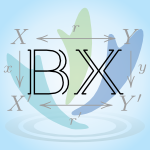 BX-2008-Matsuda1 #bidirectional #source code
BX-2008-Matsuda1 #bidirectional #source code- Bidirectionalization of Programs with Duplication through Complement Function Derivation (KM), p. 40.
 SAC-2008-SousaFVRV #approach #modelling #process #user interface
SAC-2008-SousaFVRV #approach #modelling #process #user interface- User interface derivation from business processes: a model-driven approach for organizational engineering (KSS, HMF, JV, ER, JV), pp. 553–560.
 FSE-2008-LinZ #execution
FSE-2008-LinZ #execution- Deriving input syntactic structure from execution (ZL, XZ), pp. 83–93.
 SLE-2008-SanchezLFG #process #product line #specification
SLE-2008-SanchezLFG #process #product line #specification- Engineering Languages for Specifying Product-Derivation Processes in Software Product Lines (PS, NL, LF, AG), pp. 188–207.
 SPLC-2008-PerrouinKGJ #automation #flexibility
SPLC-2008-PerrouinKGJ #automation #flexibility- Reconciling Automation and Flexibility in Product Derivation (GP, JK, NG, JMJ), pp. 339–348.
 ICST-2008-El-FakihKPY #fault #finite #state machine
ICST-2008-El-FakihKPY #fault #finite #state machine- Extended Finite State Machine Based Test Derivation Driven by User Defined Faults (KEF, AK, SP, NY), pp. 308–317.
 LICS-2008-Moschovakis #axiom #bound
LICS-2008-Moschovakis #axiom #bound- The Axiomatic Derivation of Absolute Lower Bounds (YNM), p. 405.
 RTA-2008-MoserS #polynomial #proving #using
RTA-2008-MoserS #polynomial #proving #using- Proving Quadratic Derivational Complexities Using Context Dependent Interpretations (GM, AS), pp. 276–290.
 VMCAI-2008-Mastroeni #bisimulation
VMCAI-2008-Mastroeni #bisimulation- Deriving Bisimulations by Simplifying Partitions (IM), pp. 157–171.
 ASE-2007-BotterweckOT #architecture #modelling
ASE-2007-BotterweckOT #architecture #modelling- Model-driven derivation of product architectures (GB, LO, ST), pp. 469–472.
 CASE-2007-Murphey #geometry
CASE-2007-Murphey #geometry- Geometric Derived Information Spaces in Manipulation with Mechanical Contact (TDM), pp. 338–345.
 ICDAR-2007-RinglstetterRGS #fault
ICDAR-2007-RinglstetterRGS #fault- Deriving Symbol Dependent Edit Weights for Text Correction_The Use of Error Dictionaries (CR, UR, AG, KUS), pp. 639–643.
 LATA-2007-BordihnV #on the
LATA-2007-BordihnV #on the- On leftmost derivations in CD grammar systems (HB, GV), pp. 187–198.
 ICFP-2007-MatsudaHNHT #automation #bidirectional
ICFP-2007-MatsudaHNHT #automation #bidirectional- Bidirectionalization transformation based on automatic derivation of view complement functions (KM, ZH, KN, MH, MT), pp. 47–58.
 CAiSE-2007-DjebbiS #product line #requirements
CAiSE-2007-DjebbiS #product line #requirements- RED-PL, a Method for Deriving Product Requirements from a Product Line Requirements Model (OD, CS), pp. 279–293.
 KDD-2007-ArchakGI #exclamation #mining #power of
KDD-2007-ArchakGI #exclamation #mining #power of- Show me the money!: deriving the pricing power of product features by mining consumer reviews (NA, AG, PGI), pp. 56–65.
 SEKE-2007-GuzmanPP #modelling #pattern matching #using
SEKE-2007-GuzmanPP #modelling #pattern matching #using- Using Model-Driven Pattern Matching to derive functionalities in Models (IGRdG, MP, MP), pp. 529–534.
 SEKE-2007-KrenickyWE #design #query #using
SEKE-2007-KrenickyWE #design #query #using- Exploratory Design of Derivation Business Rules Using Query Rewriting (RK, DW, SME), pp. 467–472.
 SIGIR-2007-Lee #probability
SIGIR-2007-Lee #probability- IDF revisited: a simple new derivation within the Robertson-Spärck Jones probabilistic model (LL), pp. 751–752.
 MoDELS-2007-CabotG #contract #diagrams #uml
MoDELS-2007-CabotG #contract #diagrams #uml- Deriving Operation Contracts from UML Class Diagrams (JC, CG), pp. 196–210.
 MoDELS-2007-CabotG #contract #diagrams #uml
MoDELS-2007-CabotG #contract #diagrams #uml- Deriving Operation Contracts from UML Class Diagrams (JC, CG), pp. 196–210.
 RE-2007-RabiserDGLF #product line #requirements
RE-2007-RabiserDGLF #product line #requirements- Involving Non-Technicians in Product Derivation and Requirements Engineering: A Tool Suite for Product Line Engineering (RR, DD, PG, KL, CF), pp. 367–368.
 SAC-2007-IeongL #forensics
SAC-2007-IeongL #forensics- Deriving cse-specific live forensics investigation procedures from FORZA (RSCI, HCL), pp. 175–180.
 SAC-2007-SasitornC #component
SAC-2007-SasitornC #component- Deriving components from genericity (JS, RC), pp. 1109–1116.
 SPLC-2007-RabiserGD #adaptation #modelling #variability
SPLC-2007-RabiserGD #adaptation #modelling #variability- Supporting Product Derivation by Adapting and Augmenting Variability Models (RR, PG, DD), pp. 141–150.
 PLDI-2006-VechevYB #algorithm #concurrent #garbage collection
PLDI-2006-VechevYB #algorithm #concurrent #garbage collection- Correctness-preserving derivation of concurrent garbage collection algorithms (MTV, EY, DFB), pp. 341–353.
 FM-2006-Pavlovic #development #protocol
FM-2006-Pavlovic #development #protocol- Connector-Based Software Development: Deriving Secure Protocols (DP), pp. 598–599.
 ICPR-v2-2006-ZhengZ #2d #3d #framework #metric #similarity
ICPR-v2-2006-ZhengZ #2d #3d #framework #metric #similarity- A Unifying MAP-MRF Framework for Deriving New Point Similarity Measures for Intensity-based 2D-3D Registration (GZ, XZ), pp. 1181–1185.
 KDD-2006-AchtertBKKZ #clustering #correlation #modelling
KDD-2006-AchtertBKKZ #clustering #correlation #modelling- Deriving quantitative models for correlation clusters (EA, CB, HPK, PK, AZ), pp. 4–13.
 KDD-2006-LateckiSL
KDD-2006-LateckiSL- New EM derived from Kullback-Leibler divergence (LJL, MS, RL), pp. 267–276.
 SIGIR-2006-RollekeW #information retrieval #modelling #parallel #probability
SIGIR-2006-RollekeW #information retrieval #modelling #parallel #probability- A parallel derivation of probabilistic information retrieval models (TR, JW), pp. 107–114.
 RE-2006-BastosCM #architecture #requirements
RE-2006-BastosCM #architecture #requirements- Deriving Architectures from Requirements (LRDB, JC, JM), pp. 332–333.
 RE-2006-DavisTHJM #bibliography #effectiveness #elicitation #empirical #perspective #requirements
RE-2006-DavisTHJM #bibliography #effectiveness #elicitation #empirical #perspective #requirements- Effectiveness of Requirements Elicitation Techniques: Empirical Results Derived from a Systematic Review (AMD, ÓDT, AMH, NJJ, AMM), pp. 176–185.
 LDTA-2006-CamachoMBV #automation
LDTA-2006-CamachoMBV #automation- Automated Derivation of Translators From Annotated Grammars (DOC, KM, MvdB, JJV), pp. 121–137.
 SPL-BOOK-2006-ZiadiJ #product line #uml
SPL-BOOK-2006-ZiadiJ #product line #uml- Software Product Line Engineering with the UML: Deriving Products (TZ, JMJ), pp. 557–588.
 SPLC-2006-Hunt
SPLC-2006-Hunt- Organizing the Asset Base for Product Derivation (JMH), pp. 65–74.
 SPLC-2006-SpinczykP #feature model #modelling #using
SPLC-2006-SpinczykP #feature model #modelling #using- Using Feature Models for Product Derivation (OS, HP), p. 225.
 LCTES-2006-RegehrD #embedded
LCTES-2006-RegehrD #embedded- Deriving abstract transfer functions for analyzing embedded software (JR, UD), pp. 34–43.
 CAV-2006-GershmanKS #satisfiability
CAV-2006-GershmanKS #satisfiability- Deriving Small Unsatisfiable Cores with Dominators (RG, MK, OS), pp. 109–122.
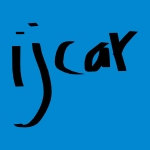 IJCAR-2006-SutcliffeSCG #finite #using
IJCAR-2006-SutcliffeSCG #finite #using- Using the TPTP Language for Writing Derivations and Finite Interpretations (GS, SS, KC, AVG), pp. 67–81.
 CBSE-2005-PelliccioneMBF #modelling #named #sequence #specification #testing
CBSE-2005-PelliccioneMBF #modelling #named #sequence #specification #testing- TeStor: Deriving Test Sequences from Model-Based Specifications (PP, HM, AB, FF), pp. 267–282.
 HT-2005-RutledgeAHV #semantics
HT-2005-RutledgeAHV #semantics- Generalized semantics-to-document derivation (LR, MA, LH, MV), pp. 284–285.
 ICDAR-2005-BertolamiB #integration #multi #recognition
ICDAR-2005-BertolamiB #integration #multi #recognition- Multiple Handwritten Text Line Recognition Systems Derived from Specific Integration of a Language Model (RB, HB), pp. 521–527.
 SIGMOD-2005-HuangDC #random
SIGMOD-2005-HuangDC #random- Deriving Private Information from Randomized Data (ZH, WD, BC), pp. 37–48.
 IWPC-2005-Smith #comprehension
IWPC-2005-Smith #comprehension- Comprehension by Derivation (DRS), pp. 3–9.
 DLT-2005-AraujoB #word
DLT-2005-AraujoB #word- Sturmian Words: Dynamical Systems and Derivated Words (IMA, VB), pp. 122–133.
 KDD-2005-GlanceHNSST #online
KDD-2005-GlanceHNSST #online- Deriving marketing intelligence from online discussion (NSG, MH, KN, MS, RS, TT), pp. 419–428.
 MLDM-2005-GhoshGYB05a #learning #parametricity
MLDM-2005-GhoshGYB05a #learning #parametricity- Determining Regularization Parameters for Derivative Free Neural Learning (RG, MG, JY, AMB), pp. 71–79.
 ECOOP-2005-VechevBCG #concurrent #evaluation
ECOOP-2005-VechevBCG #concurrent #evaluation- Derivation and Evaluation of Concurrent Collectors (MTV, DFB, PC, DG), pp. 577–601.
 OOPSLA-2005-NandaGC #type system
OOPSLA-2005-NandaGC #type system- Deriving object typestates in the presence of inter-object references (MGN, CG, SC), pp. 77–96.
 SPLC-2005-TolvanenK #case study #domain-specific language #experience #modelling
SPLC-2005-TolvanenK #case study #domain-specific language #experience #modelling- Defining Domain-Specific Modeling Languages to Automate Product Derivation: Collected Experiences (JPT, SK), pp. 198–209.
 AMOST-2005-OlimpiewG #modelling #product line #testing
AMOST-2005-OlimpiewG #modelling #product line #testing- Model-based testing for applications derived from software product lines (EMO, HG).
 ASE-2004-HotzKW #using
ASE-2004-HotzKW #using- Using a Structure-based Configuration Tool for Product Derivation (LH, TK, KW), pp. 388–391.
 FoSSaCS-2004-EhrigK #approach #bisimulation #graph grammar
FoSSaCS-2004-EhrigK #approach #bisimulation #graph grammar- Deriving Bisimulation Congruences in the DPO Approach to Graph Rewriting (HE, BK), pp. 151–166.
 FoSSaCS-2004-Meyer #on the #term rewriting
FoSSaCS-2004-Meyer #on the #term rewriting- On Term Rewriting Systems Having a Rational Derivation (AM), pp. 378–392.
 FLOPS-2004-GluckK #lr #parsing #source code
FLOPS-2004-GluckK #lr #parsing #source code- Derivation of Deterministic Inverse Programs Based on LR Parsing (RG, MK), pp. 291–306.
 SEFM-2004-KhedriB #architecture #design #functional
SEFM-2004-KhedriB #architecture #design #functional- Formal Derivation of Functional Architectural Design (RK, IB), pp. 356–265.
 ICGT-2004-FerreiraR #graph grammar #object-oriented
ICGT-2004-FerreiraR #graph grammar #object-oriented- Derivations in Object-Oriented Graph Grammars (APLF, LR), pp. 416–430.
 CAiSE-2004-Henderson-SellersDT #concept
CAiSE-2004-Henderson-SellersDT #concept- Adding Agent-Oriented Concepts Derived from Gaia to Agent OPEN (BHS, JKD, QNNT), pp. 98–111.
 ICEIS-v4-2004-LefebvreELO #e-commerce
ICEIS-v4-2004-LefebvreELO #e-commerce- The Scope and Intensity of Derived Benefits from E-Commerce Penetration in SMEs (LAL, EE, ÉL, OO), pp. 55–61.
 ICPR-v4-2004-KimPL #bound #using
ICPR-v4-2004-KimPL #bound #using- Object Boundary Edge Selection Using Normal Direction Derivatives of a Contour in a Complex Scene (TYK, JP, SWL), pp. 755–758.
 SPLC-2004-DeelstraSB #case study #experience #problem #product line
SPLC-2004-DeelstraSB #case study #experience #problem #product line- Experiences in Software Product Families: Problems and Issues During Product Derivation (SD, MS, JB), pp. 165–182.
 SPLC-2004-FantechiGLN #case study #product line #verification
SPLC-2004-FantechiGLN #case study #product line #verification- A Methodology for the Derivation and Verification of Use Cases for Product Lines (AF, SG, GL, EN), pp. 255–265.
 ASPLOS-2004-RegehrR #automation #embedded #named
ASPLOS-2004-RegehrR #automation #embedded #named- HOIST: a system for automatically deriving static analyzers for embedded systems (JR, AR), pp. 133–143.
 TestCom-2004-Schulz #consistency #protocol #testing
TestCom-2004-Schulz #consistency #protocol #testing- Derivation of Abstract Protocol Type Definitions for the Conformance Testing of Text-Based Protocols (SS), pp. 177–192.
 ASE-2003-StrelzoffP #requirements #user interface
ASE-2003-StrelzoffP #requirements #user interface- Deriving User Interface Requirements from Densely Interleaved Scientific Computing Applications (AS, LRP), pp. 22–29.
 ICDAR-2003-Hurst #approach #constraints
ICDAR-2003-Hurst #approach #constraints- A Constraint-based Approach to Table Structure Derivation (MH), pp. 911–915.
 FoSSaCS-2003-SassoneS #bisimulation
FoSSaCS-2003-SassoneS #bisimulation- Deriving Bisimulation Congruences: 2-Categories Vs Precategories (VS, PS), pp. 409–424.
 CSMR-2003-BailesP #design #framework #re-engineering
CSMR-2003-BailesP #design #framework #re-engineering- Design Derivation of an Open, Java-Based Reengineering Platform (PAB, IP), pp. 239–248.
 ICSM-2003-KlusenerL #semiparsing
ICSM-2003-KlusenerL #semiparsing- Deriving tolerant grammars from a base-line grammar (SK, RL), p. 179–?.
 CAiSE-2003-Olive #concept #modelling #object-oriented
CAiSE-2003-Olive #concept #modelling #object-oriented- Derivation Rules in Object-Oriented Conceptual Modeling Languages (AO), pp. 404–420.
 ICEIS-v3-2003-ShishkovD #case study #process
ICEIS-v3-2003-ShishkovD #case study #process- Deriving Use Cases From Business Processes, the Advantages of Demo (BS, JLGD), pp. 138–146.
 SEKE-2003-DongFH #diagrams #statechart
SEKE-2003-DongFH #diagrams #statechart- Deriving Hierarchical Predicate/Transition Nets from Statechart Diagrams (ZD, YF, XH), pp. 150–157.
 SEKE-2003-Ochs #assessment #off the shelf #requirements #risk management #using
SEKE-2003-Ochs #assessment #off the shelf #requirements #risk management #using- Using Software Risk Management for Deriving Method Requirements for Risk Mitigation in COTS Assessment and Selection (MO), pp. 639–646.
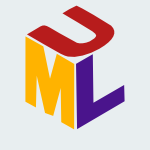 UML-2003-Balsters #database #modelling #ocl #uml
UML-2003-Balsters #database #modelling #ocl #uml- Modelling Database Views with Derived Classes in the UML/OCL-Framework (HB), pp. 295–309.
 UML-2003-BriandCL #automation #testing #towards #uml
UML-2003-BriandCL #automation #testing #towards #uml- Towards Automated Support for Deriving Test Data from UML Statecharts (LCB, JC, YL), pp. 249–264.
 PPDP-2003-EncinaP
PPDP-2003-EncinaP- Formally deriving an STG machine (AdlE, RP), pp. 102–112.
 RE-2003-LandtsheerLL #modelling #requirements #specification
RE-2003-LandtsheerLL #modelling #requirements #specification- Deriving Tabular Event-Based Specifications from Goal-Oriented Requirements Models (RDL, EL, AvL), p. 200–?.
 ICLP-2003-FarreTU
ICLP-2003-FarreTU- Handling Existential Derived Predicates in View Updating (CF, ET, TU), pp. 148–162.
 RTA-2003-MoserW
RTA-2003-MoserW- Relating Derivation Lengths with the Slow-Growing Hierarchy Directly (GM, AW), pp. 296–310.
 TLCA-2003-AbbottAGM
TLCA-2003-AbbottAGM- Derivatives of Containers (MA, TA, NG, CM), pp. 16–30.
 ASE-2002-BarberGH #architecture #evaluation #non-functional #using
ASE-2002-BarberGH #architecture #evaluation #non-functional #using- Enabling Iterative Software Architecture Derivation Using Early Non-Functional Property Evaluation (KSB, TJG, JH), pp. 172–182.
 DAC-2002-ShimizuD #generative #metric #simulation #specification
DAC-2002-ShimizuD #generative #metric #simulation #specification- Deriving a simulation input generator and a coverage metric from a formal specification (KS, DLD), pp. 801–806.
 FoSSaCS-2002-Martin
FoSSaCS-2002-Martin- The Informatic Derivative at a Compact Element (KM), pp. 310–325.
 SCAM-2002-BischofBLRV #matlab #source code
SCAM-2002-BischofBLRV #matlab #source code- Combining Source Transformation and Operator Overloading Techniques to Compute Derivatives for MATLAB Programs (CHB, HMB, BL, AR, AV), pp. 65–72.
 PLDI-2002-RamalingamWFGS #analysis #component #consistency
PLDI-2002-RamalingamWFGS #analysis #component #consistency- Deriving Specialized Program Analyses for Certifying Component-Client Conformance (GR, AV, JF, DG, SS), pp. 83–94.
 FME-2002-BackesJP #bisimulation #composition #encryption #implementation #using
FME-2002-BackesJP #bisimulation #composition #encryption #implementation #using- Deriving Cryptographically Sound Implementations Using Composition and Formally Verified Bisimulation (MB, CJ, BP), pp. 310–329.
 SEKE-2002-DenaroMP #modelling
SEKE-2002-DenaroMP #modelling- Deriving models of software fault-proneness (GD, SM, MP), pp. 361–368.
 UML-2002-BasanieriBM #approach #testing #uml
UML-2002-BasanieriBM #approach #testing #uml- The Cow_Suite Approach to Planning and Deriving Test Suites in UML Projects (FB, AB, EM), pp. 383–397.
 GPCE-2002-ChinH #composition #towards
GPCE-2002-ChinH #composition #towards- Towards a Modular Program Derivation via Fusion and Tupling (WNC, ZH), pp. 140–155.
 RE-2002-SantanderC #case study #modelling
RE-2002-SantanderC #case study #modelling- Deriving Use Cases from Organizational Modeling (VFAS, JC), pp. 32–42.
 SAC-2002-BuckerR #interface #performance
SAC-2002-BuckerR #interface #performance- Efficient derivative computations in neutron scattering via interface contraction (HMB, AR), pp. 184–188.
 FSE-2002-LetierL #specification
FSE-2002-LetierL #specification- Deriving operational software specifications from system goals (EL, AvL), pp. 119–128.
 ICSE-2002-NittoLSTT #execution #process #uml
ICSE-2002-NittoLSTT #execution #process #uml- Deriving executable process descriptions from UML (EDN, LL, MS, ET, MT), pp. 155–165.
 CAV-2002-YonedaKM #analysis #automation #constraints
CAV-2002-YonedaKM #analysis #automation #constraints- Automatic Derivation of Timing Constraints by Failure Analysis (TY, TK, CJM), pp. 195–208.
 RTA-2002-Struth #calculus
RTA-2002-Struth #calculus- Deriving Focused Lattice Calculi (GS), pp. 83–97.
 RTA-2002-Tahhan-Bittar #bound #confluence #recursion #term rewriting
RTA-2002-Tahhan-Bittar #bound #confluence #recursion #term rewriting- Recursive Derivational Length Bounds for Confluent Term Rewrite Systems (ETB), pp. 281–295.
 CSMR-2001-EisenbarthKS #component #concept analysis
CSMR-2001-EisenbarthKS #component #concept analysis- Derivation of Feature Component Maps by Means of Concept Analysis (TE, RK, DS), pp. 176–179.
 CIAA-2001-ChamparnaudD #multi
CIAA-2001-ChamparnaudD #multi- Brzozowski’s Derivatives Extended to Multiplicities (JMC, GD), pp. 52–64.
 CAiSE-2001-Olive #concept #modelling #taxonomy
CAiSE-2001-Olive #concept #modelling #taxonomy- Taxonomies and Derivation Rules in Conceptual Modeling (AO), pp. 417–432.
 PPDP-2001-HernandezR #algorithm #development #logic programming #reuse #string
PPDP-2001-HernandezR #algorithm #development #logic programming #reuse #string- Development Reuse and the Logic Program Derivation of Two String-Matching Algorithms (MH, DAR), pp. 38–48.
 RE-2001-AllenbyK #requirements #safety #using
RE-2001-AllenbyK #requirements #safety #using- Deriving Safety Requirements Using Scenarios (KA, TK), pp. 228–235.
 LDTA-2001-NakanoN #documentation #specification
LDTA-2001-NakanoN #documentation #specification- Deriving Event-Based Document Transformers from Tree-Based Specifications (KN, SN), pp. 181–205.
 CSL-2001-ArmandoRR
CSL-2001-ArmandoRR- Uniform Derivation of Decision Procedures by Superposition (AA, SR, MR), pp. 513–527.
 IJCAR-2001-EglyS #composition #proving #source code
IJCAR-2001-EglyS #composition #proving #source code- Deriving Modular Programs from Short Proofs (UE, SS), pp. 561–577.
 RTA-2001-Struth #calculus #transitive
RTA-2001-Struth #calculus #transitive- Deriving Focused Calculi for Transitive Relations (GS), pp. 291–305.
 TLCA-2001-Geuvers #dependent type #higher-order #induction #type system
TLCA-2001-Geuvers #dependent type #higher-order #induction #type system- Induction Is Not Derivable in Second Order Dependent Type Theory (HG), pp. 166–181.
 ASE-2000-El-FakihYBH #automation #distributed #petri net #specification
ASE-2000-El-FakihYBH #automation #distributed #petri net #specification- Automatic Derivation of Petri Net Based Distributed Specification with Optimal Allocation of Resources (KEF, HY, GvB, TH), pp. 305–308.
 DAC-2000-GebotysGW #architecture #power management
DAC-2000-GebotysGW #architecture #power management- Power minimization derived from architectural-usage of VLIW processors (CHG, RJG, SW), pp. 308–311.
 FoSSaCS-2000-Caucal #on the #term rewriting #word
FoSSaCS-2000-Caucal #on the #term rewriting #word- On Word Rewriting Systems Having a Rational Derivation (DC), pp. 48–62.
 SAS-2000-ChinKHT #invariant #parallel
SAS-2000-ChinKHT #invariant #parallel- Deriving Parallel Codes via Invariants (WNC, SCK, ZH, MT), pp. 75–94.
 CIAA-2000-ChamparnaudZ #automaton #canonical #finite
CIAA-2000-ChamparnaudZ #automaton #canonical #finite- New Finite Automaton Constructions Based on Canonical Derivatives (JMC, DZ), pp. 94–104.
 ICFP-2000-Hinze #backtracking #monad
ICFP-2000-Hinze #backtracking #monad- Deriving backtracking monad transformers (RH), pp. 186–197.
 ICPR-v2-2000-HansenH #bias #composition #exponential #fault #independence #product line
ICPR-v2-2000-HansenH #bias #composition #exponential #fault #independence #product line- General Bias/Variance Decomposition with Target Independent Variance of Error Functions Derived from the Exponential Family of Distributions (JVH, TH), pp. 2207–2210.
 ICPR-v3-2000-HaoS #case study #comparative #image #integer
ICPR-v3-2000-HaoS #case study #comparative #image #integer- Comparative Study of Color Transforms for Image Coding and Derivation of Integer Reversible Color Transform (PH, QYS), pp. 3228–3231.
 ICPR-v3-2000-Silvan-CardenasE #information management
ICPR-v3-2000-Silvan-CardenasE #information management- Optic-Flow Information Extraction with Directional Gaussian-Derivatives (JLSC, BER), pp. 3194–3197.
 ICPR-v3-2000-ToczyskiP #bias #estimation #geometry #linear #process
ICPR-v3-2000-ToczyskiP #bias #estimation #geometry #linear #process- Complementary Linear Biases in Spatial Derivative Estimation for Improving Geometry-Driven Diffusion Processes (WDT, NP), pp. 3001–3006.
 SAC-2000-AlhajjP
SAC-2000-AlhajjP- Maximizing Reuseability: Seeking Appropriate Positions for Derived Classes Within the Class Hierarchy (RA, FP), pp. 351–355.
 ICSE-2000-BertolinoCIM #architecture #testing
ICSE-2000-BertolinoCIM #architecture #testing- Deriving test plans from architectural descriptions (AB, FC, PI, HM), pp. 220–229.
 CL-2000-BoultonS #automation #induction #recursion
CL-2000-BoultonS #automation #induction #recursion- Automatic Derivation and Application of Induction Schemes for Mutually Recursive Functions (RJB, KS), pp. 629–643.
 RTA-2000-Stuber #calculus #convergence #term rewriting
RTA-2000-Stuber #calculus #convergence #term rewriting- Deriving Theory Superposition Calculi from Convergent Term Rewriting Systems (JS), pp. 229–245.
 PEPM-1999-Rhiger #static typing
PEPM-1999-Rhiger #static typing- Deriving a Statically Typed Type-Directed Partial Evaluator (MR), pp. 25–29.
 ICALP-1999-Rutten #automaton #induction
ICALP-1999-Rutten #automaton #induction- Automata, Power Series, and Coinduction: Taking Input Derivatives Seriously (JJMMR), pp. 645–654.
 HCI-CCAD-1999-Raikundalia99a #generative
HCI-CCAD-1999-Raikundalia99a #generative- Synchronous, dynamic derivative generation in computer-supported meetings (GKR), pp. 517–522.
 HCI-EI-1999-PuckW #documentation #image
HCI-EI-1999-PuckW #documentation #image- Deriving Tactile Images from Paper-based Documents (TP, GW), pp. 540–544.
 SIGIR-1999-SandersonC #concept
SIGIR-1999-SandersonC #concept- Deriving Concept Hierarchies from Text (MS, WBC), pp. 206–213.
 TOOLS-PACIFIC-1999-Hussey #design pattern #specification #using
TOOLS-PACIFIC-1999-Hussey #design pattern #specification #using- Using Design Patterns to Derive PAC Architectures from Object-Z Specifications (AH), pp. 40–51.
 TOOLS-PACIFIC-1999-MurrayCMS #named #testing
TOOLS-PACIFIC-1999-MurrayCMS #named #testing- TinMan — A Test Derivation and Management Tool for Specification-Based Class Testing (LM, DAC, IM, PAS), pp. 222–233.
 TOOLS-USA-1999-DanielsT #constraints #effectiveness #sequence #testing
TOOLS-USA-1999-DanielsT #constraints #effectiveness #sequence #testing- Measuring the Effectiveness of Method Test Sequences Derived from Sequencing Constraints (FJD, KCT), pp. 74–83.
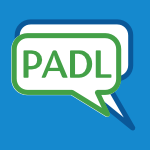 PADL-1999-BansalB #functional #logic programming #novel
PADL-1999-BansalB #functional #logic programming #novel- Applying Logic Programming to Derive Novel Functional Information of Genomes (AKB, PB), pp. 275–289.
 ICSE-1999-DeBaudS #approach #product line
ICSE-1999-DeBaudS #approach #product line- A Systematic Approach to Derive the Scope of Software Product Lines (JMD, KS), pp. 34–43.
 CAV-1999-JeronM #generative #model checking #testing
CAV-1999-JeronM #generative #model checking #testing- Test Generation Derived from Model-Checking (TJ, PM), pp. 108–121.
 ICLP-1999-CiarliniF #execution #hybrid #symbolic computation
ICLP-1999-CiarliniF #execution #hybrid #symbolic computation- Symbolic Execution for the Derivation of Meaningful Properties of Hybrid Systems (AEMC, TWF), p. 606.
 DAC-1998-DasdanRG #embedded #realtime
DAC-1998-DasdanRG #embedded #realtime- Rate Derivation and Its Applications to Reactive, Real-Time Embedded Systems (AD, DR, RKG), pp. 263–268.
 CSMR-1998-YehL #analysis #data flow #metric #testing
CSMR-1998-YehL #analysis #data flow #metric #testing- Software Testability Measurements Derived from Data Flow Analysis (PLY, JCL), pp. 96–103.
 SAS-1998-Gouranton #case study #semantics #slicing
SAS-1998-Gouranton #case study #semantics #slicing- Deriving Analysers by Folding/Unfolding of Natural Semantics and a Case Study: Slicing (VG), pp. 115–133.
 ICALP-1998-AkutsuY #biology #complexity #on the #problem
ICALP-1998-AkutsuY #biology #complexity #on the #problem- On the Complexity of Deriving Score Functions from Examples for Problems in Molecular Biology (TA, MY), pp. 832–843.
 ICALP-1998-BaldanCM #graph #process
ICALP-1998-BaldanCM #graph #process- Concatenable Graph Processes: Relating Processes and Derivation Traces (PB, AC, UM), pp. 283–295.
 ICFP-1998-ZhangL #automation #incremental #source code
ICFP-1998-ZhangL #automation #incremental #source code- Automating Derivation of Incremental Programs (YZ, YAL), p. 350.
 TAGT-1998-PetriuW #design pattern #graph transformation #modelling #performance
TAGT-1998-PetriuW #design pattern #graph transformation #modelling #performance- Deriving Software Performance Models from Architectural Patterns by Graph Transformations (DCP, XW), pp. 475–488.
 CIKM-1998-LeeLS #html #incremental #library #maintenance
CIKM-1998-LeeLS #html #incremental #library #maintenance- Incremental Maintenance for Dynamic Database-Derived HTML Pages in Digital Libraries (KCKL, HVL, AS), pp. 20–29.
 ICPR-1998-DanielssonLY #3d #segmentation #using
ICPR-1998-DanielssonLY #3d #segmentation #using- Segmentation of 3D volumes using second derivatives (PED, QL, QZY), pp. 248–251.
 ICPR-1998-VlietYV #recursion
ICPR-1998-VlietYV #recursion- Recursive Gaussian derivative filters (LJvV, ITY, PWV), pp. 509–514.
 TOOLS-ASIA-1998-CheungCC #interactive #petri net
TOOLS-ASIA-1998-CheungCC #interactive #petri net- Deriving Scenarios Of Object Interaction Through Petri Net (KSC, KOC, TYC), p. 104–?.
 ALP-PLILP-1998-LeviV #abstract interpretation #proving
ALP-PLILP-1998-LeviV #abstract interpretation #proving- Derivation of Proof Methods by Abstract Interpretation (GL, PV), pp. 102–117.
 IWTCS-1998-ShinK #protocol #testing
IWTCS-1998-ShinK #protocol #testing- Interoperability Test Suite Derivation for the ATM/B-ISDN Signaling Protocol (JS, SK), pp. 307–326.
 SIGMOD-1997-AdelbergGW #maintenance
SIGMOD-1997-AdelbergGW #maintenance- The STRIP Rule System For Efficiently Maintaining Derived Data (BA, HGM, JW), pp. 147–158.
 STOC-1997-KhannaSW #classification #constraints #problem
STOC-1997-KhannaSW #classification #constraints #problem- A Complete Classification of the Approximability of Maximization Problems Derived from Boolean Constraint Satisfaction (SK, MS, DPW), pp. 11–20.
 DLT-1997-TokudaYW #re-engineering
DLT-1997-TokudaYW #re-engineering- Deterministic Reconstruction of Context-Free Derivations for a Sentence with Shuffled Terminal Symbols (TT, KY, YW), pp. 551–558.
 DLT-1997-Zhiltsova #context-free grammar #probability
DLT-1997-Zhiltsova #context-free grammar #probability- An Optimal Coding for Stochastic Context-Free Languages with Unique Derivation (LPZ), pp. 539–550.
 ICALP-1997-Bournez #bound #constant #power of
ICALP-1997-Bournez #bound #constant #power of- Some Bounds on the Computational Power of Piecewise Constant Derivative Systems (Extended Abstract) (OB), pp. 143–153.
 FME-1997-CazierD #2d #set #term rewriting
FME-1997-CazierD #2d #set #term rewriting- Term Rewrite Systems to Derive Set Boolean Operations on 2D Objects (DC, JFD), pp. 605–623.
 HCI-SEC-1997-Ntuen #formal method
HCI-SEC-1997-Ntuen #formal method- A Formal Method for Deriving Command Production Language from Human Intents (CAN), pp. 257–260.
 SIGIR-1997-KlavansTJ #automation #effectiveness #multi #natural language #semiparsing #speech
SIGIR-1997-KlavansTJ #automation #effectiveness #multi #natural language #semiparsing #speech- Effective Use of Natural Language Processing Techniques for Automatic Conflation of Multi-Word Terms: The Role of Derivational Morphology, Part of Speech Tagging, and Shallow Parsing (ET, JK, CJ), pp. 148–155.
 TLCA-1997-Lenisa #induction #semantics #λ-calculus
TLCA-1997-Lenisa #induction #semantics #λ-calculus- Semantic Techniques for Deriving Coinductive Characterizations of Observational Equivalences for λ-calculi (ML), pp. 248–266.
 ICSM-1996-SubramaniamB #fortran #legacy
ICSM-1996-SubramaniamB #fortran #legacy- Deriving an Object Model from Legacy Fortran Code (GVS, EJB), pp. 3–12.
 WPC-1996-BailesBCJ #ada
WPC-1996-BailesBCJ #ada- Derivation and Presentation of an Abstract Program Space for Ada (PAB, PB, MC, DBJ), p. 230–?.
 ICFP-1996-HuIT #morphism #recursion
ICFP-1996-HuIT #morphism #recursion- Deriving Structural Hylomorphisms From Recursive Definitions (ZH, HI, MT), pp. 73–82.
 CAiSE-1996-LammariLJC #constraints #normalisation #using
CAiSE-1996-LammariLJC #constraints #normalisation #using- Deriving Normalized Is_a Hierarchies by Using Applicability Constraints (NL, RL, MJ, XC), pp. 562–580.
 ICPR-1996-AleksandrovskyWGLG #algorithm #sequence
ICPR-1996-AleksandrovskyWGLG #algorithm #sequence- An algorithm derived from thalamocortical circuitry stores and retrieves temporal sequences (BA, JW, AG, GL, RG), pp. 550–554.
 KDD-1996-RyuE #programming #query #search-based #using
KDD-1996-RyuE #programming #query #search-based #using- Deriving Queries from Results Using Genetic Programming (TWR, CFE), pp. 303–306.
 JICSLP-1996-PettorossiPR #algorithm #deduction #how #specification #string
JICSLP-1996-PettorossiPR #algorithm #deduction #how #specification #string- How to Extend Partial Deduction to Derive the KMP String-Matching Algorithm from a Naive Specification (Poster Abstract) (AP, MP, SR), p. 539.
 DAC-1995-FabbroFCG #modelling #probability #standard #worst-case
DAC-1995-FabbroFCG #modelling #probability #standard #worst-case- An Assigned Probability Technique to Derive Realistic Worst-Case Timing Models of Digital Standard Cells (ADF, BF, LC, CG), pp. 702–706.
 DAC-1995-GeloshS #layout #modelling #performance #tool support
DAC-1995-GeloshS #layout #modelling #performance #tool support- Deriving Efficient Area and Delay Estimates by Modeling Layout Tools (DSG, DES), pp. 402–407.
 KBSE-1995-Liu #incremental #interactive #named #program transformation #source code
KBSE-1995-Liu #incremental #interactive #named #program transformation #source code- CACHET: An Interactive, Incremental-Attribution-Based Program Transformation System for Deriving Incremental Programs (YAL), pp. 19–26.
 ICDAR-v1-1995-NiyogiS #documentation #knowledge-based #logic
ICDAR-v1-1995-NiyogiS #documentation #knowledge-based #logic- Knowledge-based derivation of document logical structure (DN, SNS), pp. 472–475.
 WCRE-1995-EdwardsM #logic #using
WCRE-1995-EdwardsM #logic #using- Deriving a Logical Data Model for a System Using the RECAST Method (HME, MM).
 DLT-1995-Rambov
DLT-1995-Rambov- Imposing Vertical Context Conditions on Derivations (OR), pp. 257–266.
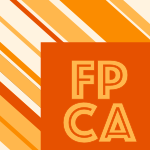 FPCA-1995-LaunchburyS #recursion
FPCA-1995-LaunchburyS #recursion- Warm Fusion: Deriving Build-Cata’s from Recursive Definitions (JL, TS), pp. 314–323.
 FPCA-1995-QuintonRW #functional #imperative #source code
FPCA-1995-QuintonRW #functional #imperative #source code- Deriving Imperative Code from Functional Programs (PQ, SVR, DW), pp. 36–44.
 CIKM-1995-Paradis #topic #using
CIKM-1995-Paradis #topic #using- Using Linguistic and Discourse Structures to Derive Topics (FP), pp. 44–49.
 SEKE-1995-BernardeschiFP #architecture #correctness #interactive #specification #user interface
SEKE-1995-BernardeschiFP #architecture #correctness #interactive #specification #user interface- Application of Correctness Preserving Transformations for Deriving Architectural Descriptions of Interactive Systems from User Interface Specifications (CB, AF, FP), pp. 234–243.
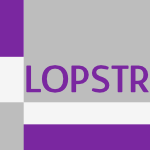 LOPSTR-1995-Gregory #algorithm #concurrent
LOPSTR-1995-Gregory #algorithm #concurrent- Derivation of Concurrent Algorithms in Tempo (SG), pp. 46–60.
 ICSE-1995-JacksonZ #requirements #specification
ICSE-1995-JacksonZ #requirements #specification- Deriving Specifications from Requirements: An Example (MJ, PZ), pp. 15–24.
 ILPS-1995-CominiLM #abstraction #composition
ILPS-1995-CominiLM #abstraction #composition- Compositionality in SLD-Derivations and their Abstractions (MC, GL, MCM), pp. 561–575.
 EDAC-1994-BeckerD #diagrams #functional #testing
EDAC-1994-BeckerD #diagrams #functional #testing- Testability of Circuits Derived from Functional Decision Diagrams (BB, RD), p. 667.
 SAS-1994-CodishD #dependence #logic programming #multi #polymorphism #source code #using
SAS-1994-CodishD #dependence #logic programming #multi #polymorphism #source code #using- Deriving Polymorphic Type Dependencies for Logic Programs Using Multiple Incarnations of Prop (MC, BD), pp. 281–296.
 FME-1994-Barros #database #relational #source code #specification
FME-1994-Barros #database #relational #source code #specification- Deriving Relational Database Programs from Formal Specifications (RSMdB), pp. 703–723.
 CAiSE-1994-SanchoO #concept #deduction #information management #modelling #specification #transaction
CAiSE-1994-SanchoO #concept #deduction #information management #modelling #specification #transaction- Deriving Transaction Specifications from Deductive Conceptual Models of Information Systems (MRS, AO), pp. 311–324.
 SEKE-1994-Alexander #generative #specification
SEKE-1994-Alexander #generative #specification- Combining transformational and derivational analogy in Larch specification generation (PA), pp. 131–138.
 SEKE-1994-Pliuskeviciene #hoare #logic #recursion
SEKE-1994-Pliuskeviciene #hoare #logic #recursion- Specialization of derivations in Hoare-like logic with recursive procedures (AP), pp. 124–130.
 TOOLS-EUROPE-1994-DanforthF
TOOLS-EUROPE-1994-DanforthF- Derived Metaclasses in SOM (SD, IRF), pp. 63–73.
 PLILP-1994-Schulte #garbage collection
PLILP-1994-Schulte #garbage collection- Deriving Residual Reference Count Garbage Collectors (WS), pp. 102–116.
 POPL-1994-HankinM #algorithm #analysis #strict #type inference
POPL-1994-HankinM #algorithm #analysis #strict #type inference- Deriving Algorithms From Type Inference Systems: Application to Strictness Analysis (CH, DLM), pp. 202–212.
 ICRE-1994-WrightFH #requirements
ICRE-1994-WrightFH #requirements- Deriving human-error tolerance requirements from tasks (PCW, BF, MDH), pp. 135–142.
 SAC-1994-Bennet #distributed #message passing #parallel #runtime #source code
SAC-1994-Bennet #distributed #message passing #parallel #runtime #source code- Distributed message routing and run-time support for message-passing parallel programs derived from ordinary programs (TB), pp. 510–514.
 SAC-1994-LiMC #analysis #fuzzy #performance
SAC-1994-LiMC #analysis #fuzzy #performance- Performance analysis of fuzzy proportional-derivative control systems (HL, HAM, GC), pp. 115–119.
 CADE-1994-Eriksson #calculus #editing #induction #interactive #named
CADE-1994-Eriksson #calculus #editing #induction #interactive #named- Pi: an Interactive Derivation Editor for the Calculus of Partial Inductive Definitions (LHE), pp. 821–825.
 ILPS-1994-AlferesDP #named #source code #top-down
ILPS-1994-AlferesDP #named #source code #top-down- SLX — A Top-down Derivation Procedure for Programs with Explicit Negation (JJA, CVD, LMP), pp. 424–438.
 ICDAR-1993-ChhabraABCLSSW #geometry #higher-order #recognition #statistics
ICDAR-1993-ChhabraABCLSSW #geometry #higher-order #recognition #statistics- High-order statistically derived combinations of geometric features for handprinted character recognition (AKC, ZA, DB, GC, KL, PS, RS, BW), pp. 397–401.
 ICDAR-1993-Pavlidis #image #using
ICDAR-1993-Pavlidis #image #using- Threshold selection using second derivatives of the gray scale image (TP), pp. 274–277.
 VLDB-1993-HachemQGW
VLDB-1993-HachemQGW- Managing Derived Data in the Gaea Scientific DBMS (NIH, KQ, MAG, MOW), pp. 1–12.
 FME-1993-GuntherSW #database #execution #on the #source code #specification
FME-1993-GuntherSW #database #execution #on the #source code #specification- On the Derivation of Executable Database Programs from Formal Specifications (TG, KDS, IW), pp. 351–366.
 CAiSE-1993-PipraniM #approach #multi #requirements #specification
CAiSE-1993-PipraniM #approach #multi #requirements #specification- A Multi-Model Approach for Deriving Requirements Specifications for a Mega-Project (CBP, RBM), pp. 199–220.
 CIKM-1993-SegevZ #maintenance #performance
CIKM-1993-SegevZ #maintenance #performance- Efficient Maintenance of Rule-Derived Data through Join Pattern Indexing (AS, JLZ), pp. 194–205.
 TOOLS-PACIFIC-1993-Jentzsch #approach #concept
TOOLS-PACIFIC-1993-Jentzsch #approach #concept- Deriving a Conceptual Model: a Business Forms Approach (RJ), pp. 7–19.
 LOPSTR-1993-Johansson #incremental #interactive #using
LOPSTR-1993-Johansson #incremental #interactive #using- Interactive Program Derivation Using Program Schemata and Incrementally Generated Strategies (ALJ), pp. 100–112.
 SAC-1993-Schulz
SAC-1993-Schulz- Computer-Based Derivation of Flux and Concentration Control Coefficients of Metabolic Control Theory (ARS), pp. 682–686.
 SAC-1993-TanLJH #reuse #specification
SAC-1993-TanLJH #reuse #specification- The Data Derivation Model: A Program Specification Technique That Improves Reusability (HBKT, TWL, SJ, YSH), pp. 95–102.
 FSE-1993-CarringtonDHW #composition #design #specification
FSE-1993-CarringtonDHW #composition #design #specification- Deriving Modular Designs from Formal Specifications (DAC, DJD, IJH, JW), pp. 89–98.
 ILPS-1993-Bsaies #automation #logic programming #performance #source code
ILPS-1993-Bsaies #automation #logic programming #performance #source code- Automated Derivation of Efficient Logic Programs by Synthesizing Eureka Properties (KB), p. 633.
 IWPTS-1993-CastanetK #coordination
IWPTS-1993-CastanetK #coordination- Deriving Coordinated Testers for Interoperability (RC, OK), pp. 331–346.
 IWPTS-1993-PetrenkoBD #consistency
IWPTS-1993-PetrenkoBD #consistency- Conformance Relations and Test Derivation (AP, GvB, RD), pp. 157–178.
 IWPTS-1993-UlrichK #using
IWPTS-1993-UlrichK #using- Test Derivation from LOTOS Using Structure Information (AU, HK), pp. 279–293.
 KBSE-1992-Liao #execution #on the #performance
KBSE-1992-Liao #execution #on the #performance- On Efficiently Computing Derived Performance Data of Program Execution (YL), p. 25.
 SEKE-1992-Parisi-PresicceP #design
SEKE-1992-Parisi-PresicceP #design- System Design as Derivation via Rewriting (FPP, AP), pp. 317–324.
 ALP-1992-Balbiani #logic programming
ALP-1992-Balbiani #logic programming- The Finiteness of Logic Programming Derivations (PB), pp. 403–419.
 ALP-1992-Hanus #incremental
ALP-1992-Hanus #incremental- Incremental Rewriting in Narrowing Derivations (MH), pp. 228–243.
 LOPSTR-1992-BoulangerB #abstract interpretation #logic programming #source code #using
LOPSTR-1992-BoulangerB #abstract interpretation #logic programming #source code #using- Deriving Transformations for Logic Programs Using Abstract Interpretation (DB, MB), pp. 99–117.
 PLILP-1992-VerschaetseS #abstract interpretation #linear
PLILP-1992-VerschaetseS #abstract interpretation #linear- Deriving of Linear Size Relations by Abstract Interpretation (KV, DDS), pp. 296–310.
 IWPTS-1992-Kloosterman #finite #nondeterminism #state machine
IWPTS-1992-Kloosterman #finite #nondeterminism #state machine- Test Derivation from Non-Deterministic Finite State Machines (HK), pp. 297–308.
 IWPTS-1992-RoblesMH #consistency #specification #testing
IWPTS-1992-RoblesMH #consistency #specification #testing- Specification and Derivation of OSI Conformance Test Suites (TR, JAM, GH), pp. 177–188.
 JICSLP-1992-ChandyK #composition #source code
JICSLP-1992-ChandyK #composition #source code- The Derivation of Compositional Programs (KMC, CK), pp. 3–17.
 KBSE-1991-MiriryalaH #specification
KBSE-1991-MiriryalaH #specification- The Role of Analogy in Specification Derivation (KM, MTH), pp. 117–126.
 VDME-1991-1-Weber
VDME-1991-1-Weber- Deriving Transivity of VDM-Reification in DEVA (MW), pp. 406–427.
 KR-1991-GreinerO #approximate
KR-1991-GreinerO #approximate- Probably Approximately Optimal Derivation Strategies (RG, PO), pp. 277–288.
 POPL-1991-Maranget #orthogonal #term rewriting #λ-calculus
POPL-1991-Maranget #orthogonal #term rewriting #λ-calculus- Optimal Derivations in Weak λ-calculi and in Orthogonal Terms Rewriting Systems (LM), pp. 255–269.
 ICLP-1991-CodishDY #algorithm #alias #analysis #safety #unification
ICLP-1991-CodishDY #algorithm #alias #analysis #safety #unification- Derivation and Safety of an Abstract Unification Algorithm for Groundness and Aliasing Analysis (MC, DD, EY), pp. 79–93.
 ICLP-1991-VerschaetseS #logic programming #proving #source code #termination #using
ICLP-1991-VerschaetseS #logic programming #proving #source code #termination #using- Deriving Termination Proofs for Logic Programs, Using Abstract Procedures (KV, DDS), pp. 301–315.
 ISLP-1991-Kawamura #logic programming #performance #source code
ISLP-1991-Kawamura #logic programming #performance #source code- Derivation of Efficient Logic Programs by Synthesizing New Predicates (TK), pp. 611–625.
 IWPTS-1991-DamKK #standard
IWPTS-1991-DamKK #standard- Text Derivation for Standardised Test Methods (HvD, HK, EK), pp. 69–82.
 RTA-1991-DrewesL #incremental #proving #termination
RTA-1991-DrewesL #incremental #proving #termination- Incremental Termination Proofs and the Length of Derivations (FD, CL), pp. 49–61.
 RTA-1991-KrischerB #detection
RTA-1991-KrischerB #detection- Detecting Redundant Narrowing Derivations by the LSE-SL Reducability Test (SK, AB), pp. 74–85.
 PODS-1990-Gelder #constraints #logic programming #source code
PODS-1990-Gelder #constraints #logic programming #source code- Deriving Constraints Among Argument Sizes in Logic Programs (AVG), pp. 47–60.
 VLDB-1990-CeriW #constraints
VLDB-1990-CeriW #constraints- Deriving Production Rules for Constraint Maintainance (SC, JW), pp. 566–577.
 GG-1990-Maggiolo-SchettiniW #relational
GG-1990-Maggiolo-SchettiniW #relational- Programmed Derivations of Relational Structures (AMS, JW), pp. 582–598.
 ML-1990-GordonG #empirical
ML-1990-GordonG #empirical- Explanations of Empirically Derived Reactive Plans (DFG, JJG), pp. 198–203.
 ALP-1990-Hofbauer #multi #order #proving #recursion #termination
ALP-1990-Hofbauer #multi #order #proving #recursion #termination- Termination Proofs by Multiset Path Orderings Imply Primitive Recursive Derivation Lengths (DH), pp. 347–358.
 CLP-1990-GallagherB90 #algorithm
CLP-1990-GallagherB90 #algorithm- The Derivation of an Algorithm for Program Specialisation (JPG, MB), pp. 732–746.
 NACLP-1990-Helm #execution #on the
NACLP-1990-Helm #execution #on the- On the Elimination of Redundant Derivations During Execution (RH), pp. 551–568.
 DAC-1989-WangKL #approach #fault #logic #robust #set
DAC-1989-WangKL #approach #fault #logic #robust #set- A New Approach to Derive Robust Sets for Stuck-open Faults in CMOS Combinational Logic Circuits (JFW, TYK, JYL), pp. 726–729.
 VLDB-1989-ChenL #database #semantics
VLDB-1989-ChenL #database #semantics- Derived Data Update in Semantic Databases (IMAC, DM), pp. 225–235.
 SEKE-1989-HanHZ #compilation #set
SEKE-1989-HanHZ #compilation #set- Derivation of Magic Sets by Compilation (JH, LJH, NZ), pp. 164–171.
 SEKE-1989-HeL #logic #petri net #specification
SEKE-1989-HeL #logic #petri net #specification- Deriving Temporal Logic Specifications from Predicate Transition Petri Net (XH, JANL), pp. 116–121.
 CSL-1989-Mey #calculus
CSL-1989-Mey #calculus- A Predicate Calculus with Control of Derivations (DM), pp. 254–266.
 NACLP-1989-FurukawaFS #partial evaluation #performance
NACLP-1989-FurukawaFS #partial evaluation #performance- Deriving an Efficient Production System by Partial Evaluation (KF, HF, TS), pp. 661–674.
 NACLP-1989-Helm #bottom-up #execution #on the
NACLP-1989-Helm #bottom-up #execution #on the- On the Dedection and Elimination of Redundant Derivations during Bottom-up Execution (ARH), pp. 945–962.
 RTA-1989-HofbauerL #proving #termination
RTA-1989-HofbauerL #proving #termination- Termination Proofs and the Length of Derivations (Preliminary Version) (DH, CL), pp. 167–177.
 SIGMOD-1988-Malvestuto #problem #summary
SIGMOD-1988-Malvestuto #problem #summary- The Derivation Problem for Summary Data (FMM), pp. 82–89.
 VLDB-1988-NeuholdS #personalisation
VLDB-1988-NeuholdS #personalisation- Dynamic Derivation of Personalized Views (EJN, MS), pp. 183–194.
 ICSE-1988-Johnson #requirements #specification
ICSE-1988-Johnson #requirements #specification- Deriving Specifications from Requirements (WLJ), pp. 428–438.
 POPL-1987-KohlbeckerW #metaprogramming #named #specification
POPL-1987-KohlbeckerW #metaprogramming #named #specification- Macro-by-Example: Deriving Syntactic Transformations from their Specifications (EEK, MW), pp. 77–84.
 ICLP-1987-Zobel87 #polymorphism #prolog #source code
ICLP-1987-Zobel87 #polymorphism #prolog #source code- Derivation of Polymorphic Types for PROLOG Programs (JZ), pp. 817–838.
 VLDB-1986-BlakeleyCL #detection
VLDB-1986-BlakeleyCL #detection- Updating Derived Relations: Detecting Irrelevant and Autonomously Computable Updates (JAB, NC, PÅL), pp. 457–466.
 GG-1986-Kreowski #concurrent #graph grammar #parallel
GG-1986-Kreowski #concurrent #graph grammar #parallel- Is parallelism already concurrency? Part 1: Derivations in graph grammars (HJK), pp. 343–360.
 SLP-1986-Gelder86 #logic programming #source code #using
SLP-1986-Gelder86 #logic programming #source code #using- Negation as Failure Using Tight Derivations for General Logic Programs (AVG), pp. 127–138.
 VLDB-1985-LarsonY #query
VLDB-1985-LarsonY #query- Computing Queries from Derived Relations (PÅL, HZY), pp. 259–269.
 ICALP-1985-BucherEH #on the
ICALP-1985-BucherEH #on the- On Total Regulators Generated by Derivation Relations (WB, AE, DH), pp. 71–79.
 ICALP-1984-Welzl #encoding #formal method #graph #graph grammar
ICALP-1984-Welzl #encoding #formal method #graph #graph grammar- Encoding Graphs by Derivations and Implications for the Theory of Graph Grammars (EW), pp. 503–513.
 LFP-1984-Pettorossi #performance #source code
LFP-1984-Pettorossi #performance #source code- A Powerful Strategy for Deriving Efficient Programs by Transformation (AP), pp. 273–281.
 ILPC-1984-Johansson84 #logic programming #source code #symmetry #using
ILPC-1984-Johansson84 #logic programming #source code #symmetry #using- Using Symmetry for the Derivation of Logic Programs (ALJ), pp. 243–251.
 SLP-1984-AponteFR84 #editing #first-order #proving
SLP-1984-AponteFR84 #editing #first-order #proving- Editing First-Order Proofs: Programmed Rules vs Derived Rules (MVA, JAF, PR), pp. 92–98.
 SIGIR-1983-Yannakoudakis #retrieval
SIGIR-1983-Yannakoudakis #retrieval- Derived Search Keys for Bibliographic Retrieval (EJY), pp. 220–237.
 POPL-1983-BackMR #algorithm #graph #performance
POPL-1983-BackMR #algorithm #graph #performance- Derivation of Efficient DAG Marking Algorithms (RJB, HM, KJR), pp. 20–27.
 DAC-1982-MuellerV #automation #semantics
DAC-1982-MuellerV #automation #semantics- Formal semantics for the automated derivation of micro-code (RAM, JV), pp. 815–824.
 ICALP-1982-GuttagKM #term rewriting #tool support
ICALP-1982-GuttagKM #term rewriting #tool support- Derived Pairs, Overlap Closures, and Rewrite Dominoes: New Tools for Analyzing Term rewriting Systems (JVG, DK, DRM), pp. 300–312.
 CADE-1982-Smith #synthesis
CADE-1982-Smith #synthesis- Derived Preconditions and Their Use in Program Synthesis (DRS), pp. 172–193.
 ILPC-1982-ErikssonJT82 #editing #towards
ILPC-1982-ErikssonJT82 #editing #towards- Towards a Derivation Editor (AE, ALJ, SÅT), pp. 146–151.
 SIGMOD-1981-Sato #database #summary
SIGMOD-1981-Sato #database #summary- Handling Summary Information in a Database: Derivability (HS), pp. 98–107.
 VLDB-1981-Adiba #distributed
VLDB-1981-Adiba #distributed- Derived Relations: A Unified Mechanism for Views, Snapshots, and Distributed Data (MEA), pp. 293–305.
 VLDB-1981-KoenigP #automation #framework
VLDB-1981-KoenigP #automation #framework- A Transformational Framework for the Automatic Control of Derived Data (SK, RP), pp. 306–318.
 VLDB-1981-VelosoCF #specification
VLDB-1981-VelosoCF #specification- Systematic Derivation of Complementary Specifications (PASV, JMVdC, ALF), pp. 409–421.
 ICALP-1979-KuichPU #on the
ICALP-1979-KuichPU #on the- On the Height of Derivation Trees (WK, HP, FJU), pp. 370–384.
 GG-1978-EhrigR #composition #graph grammar
GG-1978-EhrigR #composition #graph grammar- Decomposition of Graph Grammar Productions and Derivations (HE, BKR), pp. 192–205.
 ICALP-1977-Monien
ICALP-1977-Monien- About the Derivation Languages of Grammars and Machines (BM), pp. 337–351.
 POPL-1976-LeongW #parsing
POPL-1976-LeongW #parsing- The Influence of Productions on Derivations and Parsing (BLL, DW), pp. 1–11.
 ICSE-1976-Gries #correctness #proving #source code
ICSE-1976-Gries #correctness #proving #source code- An Illustration of Current Ideas on the Derivation of Correctness Proofs and Correct Programs (Abstract) (DG), p. 200.
 STOC-1974-Millen #parallel
STOC-1974-Millen #parallel- Construction with Parallel Derivatives of the Closure of a Parallel Program Schema (JKM), pp. 242–247.
 SIGFIDET-1971-Owens #evaluation #set
SIGFIDET-1971-Owens #evaluation #set- Evaluation of Access Authorization Characteristics of Derived Data Sets (RCOJ), pp. 263–278.
 CASE-2015-GiulianiC #optimisation #problem
CASE-2015-GiulianiC #optimisation #problem DocEng-2015-MarriottSW #automation #documentation #editing #named #visual notation
DocEng-2015-MarriottSW #automation #documentation #editing #named #visual notation ITiCSE-2015-ChaudhariD #formal method
ITiCSE-2015-ChaudhariD #formal method PLDI-2015-FaddegonC #algorithm #debugging #dependence #haskell #source code #stack
PLDI-2015-FaddegonC #algorithm #debugging #dependence #haskell #source code #stack CIAA-2015-BrodaCFM #algebra
CIAA-2015-BrodaCFM #algebra LATA-2015-SulzmannT
LATA-2015-SulzmannT LATA-2015-ThiemannS #automaton #regular expression
LATA-2015-ThiemannS #automaton #regular expression HCI-IT-2015-PoirierB #named
HCI-IT-2015-PoirierB #named CAiSE-2015-WeiBO #interface #web #web service
CAiSE-2015-WeiBO #interface #web #web service ICEIS-v2-2015-CruzMS #modelling #process #set
ICEIS-v2-2015-CruzMS #modelling #process #set MoDELS-2015-HolldoblerRW #model transformation
MoDELS-2015-HolldoblerRW #model transformation Onward-2015-GreweEWM #performance #proving #type system
Onward-2015-GreweEWM #performance #proving #type system SAC-2015-VilelaCPSCL #behaviour #modelling
SAC-2015-VilelaCPSCL #behaviour #modelling ESEC-FSE-2015-FuLB #analysis #automation #memory dump #memory management #pointer
ESEC-FSE-2015-FuLB #analysis #automation #memory dump #memory management #pointer SPLC-2015-FangLDEZ #automation #industrial #modelling #towards
SPLC-2015-FangLDEZ #automation #industrial #modelling #towards SPLC-2015-FilhoABAB #empirical #java #product line #source code
SPLC-2015-FilhoABAB #empirical #java #product line #source code WICSA-2014-SeriaiSSH #component #interface #legacy
WICSA-2014-SeriaiSSH #component #interface #legacy ESOP-2014-PoulsenM #semantics
ESOP-2014-PoulsenM #semantics PEPM-J-2013-Simon14 #type inference #using
PEPM-J-2013-Simon14 #type inference #using PEPM-2014-Garcia-PerezNS #λ-calculus
PEPM-2014-Garcia-PerezNS #λ-calculus FLOPS-2014-SulzmannL #parsing #regular expression
FLOPS-2014-SulzmannL #parsing #regular expression CIAA-2014-MaiaMR #automaton #similarity
CIAA-2014-MaiaMR #automaton #similarity ILC-2014-Nunes-Harwitt #compilation #prolog
ILC-2014-Nunes-Harwitt #compilation #prolog ICGT-2014-CorradiniH #canonical
ICGT-2014-CorradiniH #canonical ICEIS-v1-2014-HenriquesA #database #generative #modelling #sequence
ICEIS-v1-2014-HenriquesA #database #generative #modelling #sequence ICEIS-v3-2014-BarrosFSA #approach #towards
ICEIS-v3-2014-BarrosFSA #approach #towards ICPR-2014-JainCL #image
ICPR-2014-JainCL #image RecSys-2014-BadenesBCGHMNPSSXYZ #automation #people #recommendation #social #social media
RecSys-2014-BadenesBCGHMNPSSXYZ #automation #people #recommendation #social #social media SEKE-2014-BarreirosM #flexibility #modelling #product line
SEKE-2014-BarreirosM #flexibility #modelling #product line RE-2014-MartinsO #analysis #case study #fault #functional #protocol #requirements #safety #using
RE-2014-MartinsO #analysis #case study #fault #functional #protocol #requirements #safety #using SAC-2014-LoulergueRTLH #parallel #problem
SAC-2014-LoulergueRTLH #parallel #problem SPLC-2014-YuZZJ #automation #case study #feature model #named
SPLC-2014-YuZZJ #automation #case study #feature model #named ICTSS-2014-SamihGBAB #approach #modelling #testing
ICTSS-2014-SamihGBAB #approach #modelling #testing TACAS-2013-BhatBGR #functional #probability #source code
TACAS-2013-BhatBGR #functional #probability #source code PEPM-2013-Simon #type inference #using
PEPM-2013-Simon #type inference #using STOC-2013-Sherstov #bound #communication #using
STOC-2013-Sherstov #bound #communication #using LATA-2013-ChamparnaudDJM #regular expression
LATA-2013-ChamparnaudDJM #regular expression ICFP-2013-TraytelN #regular expression #word
ICFP-2013-TraytelN #regular expression #word GCM-J-2012-Flick #graph grammar
GCM-J-2012-Flick #graph grammar ICEIS-v1-2013-KozminaNG #concept #requirements
ICEIS-v1-2013-KozminaNG #concept #requirements ICEIS-v3-2013-AhmadO #approach #architecture #enterprise #process #semantics
ICEIS-v3-2013-AhmadO #approach #architecture #enterprise #process #semantics ICML-c3-2013-BroderickKJ #named
ICML-c3-2013-BroderickKJ #named KDIR-KMIS-2013-CheetiSC #adaptation #approach #classification #naive bayes #sentiment #syntax #using
KDIR-KMIS-2013-CheetiSC #adaptation #approach #classification #naive bayes #sentiment #syntax #using MoDELS-2013-Gonzalez-HuertaIA #approach #architecture #multi #validation
MoDELS-2013-Gonzalez-HuertaIA #approach #architecture #multi #validation MoDELS-2013-SemerathHV #constraints #domain-specific language #graph #query #validation
MoDELS-2013-SemerathHV #constraints #domain-specific language #graph #query #validation MoDELS-2013-Gonzalez-HuertaIA #approach #architecture #multi #validation
MoDELS-2013-Gonzalez-HuertaIA #approach #architecture #multi #validation MoDELS-2013-SemerathHV #constraints #domain-specific language #graph #query #validation
MoDELS-2013-SemerathHV #constraints #domain-specific language #graph #query #validation PPDP-2013-Garcia-PerezNM #order #semantics
PPDP-2013-Garcia-PerezNM #order #semantics SAC-2013-FanYZ #architecture #framework #modelling #scalability
SAC-2013-FanYZ #architecture #framework #modelling #scalability SAC-2013-TranLZ #architecture #metadata #security
SAC-2013-TranLZ #architecture #metadata #security SPLC-2013-ClementsKSW #strict
SPLC-2013-ClementsKSW #strict CASE-2012-WimbockRC #coordination #verification
CASE-2012-WimbockRC #coordination #verification DocEng-2012-PenadesGC #documentation #feature model #modelling #workflow
DocEng-2012-PenadesGC #documentation #feature model #modelling #workflow FoSSaCS-2012-HulsbuschK #bisimulation
FoSSaCS-2012-HulsbuschK #bisimulation ICPC-2012-FeigenspanBR #question
ICPC-2012-FeigenspanBR #question ICSM-2012-HigoK #consistency #detection #how #nondeterminism
ICSM-2012-HigoK #consistency #detection #how #nondeterminism DLT-J-2011-BrodaMMR12 #automaton #on the
DLT-J-2011-BrodaMMR12 #automaton #on the CIAA-2012-CaronCM #multi
CIAA-2012-CaronCM #multi DLT-2012-BuchseMV #semantics
DLT-2012-BuchseMV #semantics DLT-2012-HolzerJM #context-free grammar
DLT-2012-HolzerJM #context-free grammar LATA-2012-ChamparnaudJM #approximate #regular expression
LATA-2012-ChamparnaudJM #approximate #regular expression CAiSE-2012-Guizzardi #ontology
CAiSE-2012-Guizzardi #ontology ICPR-2012-YaoKK #artificial reality
ICPR-2012-YaoKK #artificial reality KEOD-2012-BachaZ12a #design #education
KEOD-2012-BachaZ12a #design #education ECMFA-2012-RathHV #emf #query
ECMFA-2012-RathHV #emf #query GPCE-2012-RysselPK #feature model #modelling #reasoning
GPCE-2012-RysselPK #feature model #modelling #reasoning PPDP-2012-SulzmannL #regular expression #using
PPDP-2012-SulzmannL #regular expression #using ICSE-2012-Westermann #developer #feedback #performance
ICSE-2012-Westermann #developer #feedback #performance SPLC-2012-Elsner #staged #tool support
SPLC-2012-Elsner #staged #tool support ICLP-2012-Tarau #performance
ICLP-2012-Tarau #performance ECSA-2011-MullerKG #architecture
ECSA-2011-MullerKG #architecture QoSA-ISARCS-2011-HauckKHR #framework #named
QoSA-ISARCS-2011-HauckKHR #framework #named ASE-2011-ChakrabortyS #approach #framework #towards
ASE-2011-ChakrabortyS #approach #framework #towards DAC-2011-WangXAP #classification #learning #policy #power management #using
DAC-2011-WangXAP #classification #learning #policy #power management #using ICDAR-2011-AtanasiuLV #novel #retrieval #using
ICDAR-2011-AtanasiuLV #novel #retrieval #using FoSSaCS-2011-AristizabalBPPV #concurrent #constraints #programming #similarity
FoSSaCS-2011-AristizabalBPPV #concurrent #constraints #programming #similarity DLT-J-2010-BrodaMMR11 #approach #automaton #combinator #complexity #on the
DLT-J-2010-BrodaMMR11 #approach #automaton #combinator #complexity #on the DLT-2011-BrodaMMR #automaton #complexity
DLT-2011-BrodaMMR #automaton #complexity LATA-2011-CaronCM #regular expression
LATA-2011-CaronCM #regular expression ICFP-2011-GillF #fault #implementation #performance
ICFP-2011-GillF #fault #implementation #performance ICFP-2011-MightDS #functional #parsing
ICFP-2011-MightDS #functional #parsing IDGD-2011-BrandND #embedded #interactive #network #social #using
IDGD-2011-BrandND #embedded #interactive #network #social #using MoDELS-2011-RamirezC #automation #monitoring #requirements
MoDELS-2011-RamirezC #automation #monitoring #requirements MoDELS-2011-RamirezC #automation #monitoring #requirements
MoDELS-2011-RamirezC #automation #monitoring #requirements GPCE-2011-Launchbury
GPCE-2011-Launchbury ICSE-2011-DumitruGHCMCM #mining #on-demand #recommendation
ICSE-2011-DumitruGHCMCM #mining #on-demand #recommendation SPLC-2011-ChenE #optimisation #process
SPLC-2011-ChenE #optimisation #process SPLC-2011-TawhidP #automation #performance #product line
SPLC-2011-TawhidP #automation #performance #product line CSL-2011-KomendantskayaP #algebra #logic programming
CSL-2011-KomendantskayaP #algebra #logic programming CSL-2011-SchnablS #complexity #runtime
CSL-2011-SchnablS #complexity #runtime RTA-2011-MoserS #complexity #dependence #framework #multi #proving #recursion #termination
RTA-2011-MoserS #complexity #dependence #framework #multi #proving #recursion #termination SAT-2011-IgnatievS #encryption
SAT-2011-IgnatievS #encryption ASE-2010-GabrysiakGS #behaviour #interactive #multi #process #requirements #validation
ASE-2010-GabrysiakGS #behaviour #interactive #multi #process #requirements #validation ASE-2010-Green #implementation #specification
ASE-2010-Green #implementation #specification DAC-2010-HelinskiAP #evaluation #metric #physics #quality
DAC-2010-HelinskiAP #evaluation #metric #physics #quality DAC-2010-SingheeC
DAC-2010-SingheeC DATE-2010-RaffelsieperMS #library
DATE-2010-RaffelsieperMS #library DRR-2010-ChenMT #automation #performance #using #validation #word
DRR-2010-ChenMT #automation #performance #using #validation #word TACAS-2010-Belinfante #execution #modelling #named #online
TACAS-2010-Belinfante #execution #modelling #named #online ICSM-2010-AlvesYV #benchmark #metric
ICSM-2010-AlvesYV #benchmark #metric SCAM-2010-AllierVDS #graph #metric
SCAM-2010-AllierVDS #graph #metric WCRE-2010-Guerrouj #analysis #automation #concept #identifier #source code
WCRE-2010-Guerrouj #analysis #automation #concept #identifier #source code SAS-2010-AmatoPS #abstract domain #analysis #component
SAS-2010-AmatoPS #abstract domain #analysis #component DLT-J-2008-Csuhaj-VarjuDV10
DLT-J-2008-Csuhaj-VarjuDV10 CIAA-2010-AlmeidaMPS #automaton #coq
CIAA-2010-AlmeidaMPS #automaton #coq DLT-2010-BrodaMMR #automaton #on the
DLT-2010-BrodaMMR #automaton #on the IFL-2010-SieczkowskiBB #automation #automaton #coq #formal method #reduction #semantics
IFL-2010-SieczkowskiBB #automation #automaton #coq #formal method #reduction #semantics GT-VMT-2010-HermannCEK #analysis #equivalence #graph #performance #permutation #petri net
GT-VMT-2010-HermannCEK #analysis #equivalence #graph #performance #permutation #petri net ICPR-2010-MochizukiKISI #energy
ICPR-2010-MochizukiKISI #energy ICPR-2010-SeppkeDHW #equation #multi #parametricity #performance #using
ICPR-2010-SeppkeDHW #equation #multi #parametricity #performance #using ICPR-2010-ShobeirinejadG #classification #gender #using
ICPR-2010-ShobeirinejadG #classification #gender #using ICPR-2010-ZhaoGC #higher-order #image #recognition #representation
ICPR-2010-ZhaoGC #higher-order #image #recognition #representation KEOD-2010-Metke-JimenezRM #comparison #framework #ontology #wiki
KEOD-2010-Metke-JimenezRM #comparison #framework #ontology #wiki SEKE-2010-AbranAC #maintenance #metric #requirements
SEKE-2010-AbranAC #maintenance #metric #requirements PPDP-2010-AsaiK #continuation #functional #virtual machine
PPDP-2010-AsaiK #continuation #functional #virtual machine PPDP-2010-LiangK #datalog #statistics
PPDP-2010-LiangK #datalog #statistics LDTA-2010-HoldermansH #on the #program transformation #type system
LDTA-2010-HoldermansH #on the #program transformation #type system LCTES-2010-SchlicklingP #analysis #automation #modelling
LCTES-2010-SchlicklingP #analysis #automation #modelling VMCAI-2010-JungKWY #abstraction #algorithm #invariant #learning
VMCAI-2010-JungKWY #abstraction #algorithm #invariant #learning DocEng-2009-KohK #documentation
DocEng-2009-KohK #documentation PEPM-2009-PardoFS #higher-order #monad #source code
PEPM-2009-PardoFS #higher-order #monad #source code CIAA-2009-SuzukiO
CIAA-2009-SuzukiO CAiSE-2009-SommervilleLSD #modelling #requirements
CAiSE-2009-SommervilleLSD #modelling #requirements ICEIS-DISI-2009-CiriloKL #automation #enterprise #web
ICEIS-DISI-2009-CiriloKL #automation #enterprise #web ICEIS-ISAS-2009-WangWWL #canonical #modelling #process
ICEIS-ISAS-2009-WangWWL #canonical #modelling #process CIKM-2009-BalachandranPK #clustering #configuration management #dataset #documentation
CIKM-2009-BalachandranPK #clustering #configuration management #dataset #documentation KDIR-2009-TsakonasD #estimation #modelling #programming #search-based
KDIR-2009-TsakonasD #estimation #modelling #programming #search-based MLDM-2009-SarmentoKOU #clustering #performance #set
MLDM-2009-SarmentoKOU #clustering #performance #set SIGIR-2009-CanCGJKRRSSUW #detection #web
SIGIR-2009-CanCGJKRRSSUW #detection #web SIGIR-2009-PascaA #concept #information retrieval #web
SIGIR-2009-PascaA #concept #information retrieval #web ECMDA-FA-2009-HeidenreichJKSW #modelling #refinement #syntax
ECMDA-FA-2009-HeidenreichJKSW #modelling #refinement #syntax SAC-2009-CiriloNKNL #automation #multi #product line
SAC-2009-CiriloNKNL #automation #multi #product line SAC-2009-WangDLL #performance #process
SAC-2009-WangDLL #performance #process SPLC-2009-OLearyRRT #case study #experience #independence #process #research
SPLC-2009-OLearyRRT #case study #experience #independence #process #research ASPLOS-2009-MenonSZ #automation #named #network #performance
ASPLOS-2009-MenonSZ #automation #named #network #performance CADE-2009-LudwigH #reasoning
CADE-2009-LudwigH #reasoning RTA-2009-MoserS #complexity #dependence
RTA-2009-MoserS #complexity #dependence WICSA-2008-AnderssonEL #adaptation #architecture #automation
WICSA-2008-AnderssonEL #adaptation #architecture #automation PODS-2008-SenellartG #complexity #database #on the
PODS-2008-SenellartG #complexity #database #on the FASE-2008-AlrajehRU #behaviour #modelling #using
FASE-2008-AlrajehRU #behaviour #modelling #using FoSSaCS-2008-RangelKE #bisimulation
FoSSaCS-2008-RangelKE #bisimulation PEPM-2008-Mu #algorithm #bound #problem
PEPM-2008-Mu #algorithm #bound #problem PLDI-2008-VechevY #concurrent #fine-grained
PLDI-2008-VechevY #concurrent #fine-grained DLT-2008-Csuhaj-VarjuDV
DLT-2008-Csuhaj-VarjuDV DLT-2008-EsparzaKL #analysis #fixpoint
DLT-2008-EsparzaKL #analysis #fixpoint SIGAda-2008-Doran #ada #development #embedded #named #programming language #realtime
SIGAda-2008-Doran #ada #development #embedded #named #programming language #realtime EDOC-2008-MahfouzBLN #dependence
EDOC-2008-MahfouzBLN #dependence EDOC-2008-SchropferS
EDOC-2008-SchropferS ICEIS-ISAS2-2008-RaoRO #elicitation #ontology
ICEIS-ISAS2-2008-RaoRO #elicitation #ontology CIKM-2008-ShawXG #approximate #dataset
CIKM-2008-ShawXG #approximate #dataset BX-2008-Matsuda1 #bidirectional #source code
BX-2008-Matsuda1 #bidirectional #source code SAC-2008-SousaFVRV #approach #modelling #process #user interface
SAC-2008-SousaFVRV #approach #modelling #process #user interface FSE-2008-LinZ #execution
FSE-2008-LinZ #execution SLE-2008-SanchezLFG #process #product line #specification
SLE-2008-SanchezLFG #process #product line #specification SPLC-2008-PerrouinKGJ #automation #flexibility
SPLC-2008-PerrouinKGJ #automation #flexibility ICST-2008-El-FakihKPY #fault #finite #state machine
ICST-2008-El-FakihKPY #fault #finite #state machine LICS-2008-Moschovakis #axiom #bound
LICS-2008-Moschovakis #axiom #bound RTA-2008-MoserS #polynomial #proving #using
RTA-2008-MoserS #polynomial #proving #using VMCAI-2008-Mastroeni #bisimulation
VMCAI-2008-Mastroeni #bisimulation ASE-2007-BotterweckOT #architecture #modelling
ASE-2007-BotterweckOT #architecture #modelling CASE-2007-Murphey #geometry
CASE-2007-Murphey #geometry ICDAR-2007-RinglstetterRGS #fault
ICDAR-2007-RinglstetterRGS #fault LATA-2007-BordihnV #on the
LATA-2007-BordihnV #on the ICFP-2007-MatsudaHNHT #automation #bidirectional
ICFP-2007-MatsudaHNHT #automation #bidirectional CAiSE-2007-DjebbiS #product line #requirements
CAiSE-2007-DjebbiS #product line #requirements KDD-2007-ArchakGI #exclamation #mining #power of
KDD-2007-ArchakGI #exclamation #mining #power of SEKE-2007-GuzmanPP #modelling #pattern matching #using
SEKE-2007-GuzmanPP #modelling #pattern matching #using SEKE-2007-KrenickyWE #design #query #using
SEKE-2007-KrenickyWE #design #query #using SIGIR-2007-Lee #probability
SIGIR-2007-Lee #probability MoDELS-2007-CabotG #contract #diagrams #uml
MoDELS-2007-CabotG #contract #diagrams #uml MoDELS-2007-CabotG #contract #diagrams #uml
MoDELS-2007-CabotG #contract #diagrams #uml RE-2007-RabiserDGLF #product line #requirements
RE-2007-RabiserDGLF #product line #requirements SAC-2007-IeongL #forensics
SAC-2007-IeongL #forensics SAC-2007-SasitornC #component
SAC-2007-SasitornC #component SPLC-2007-RabiserGD #adaptation #modelling #variability
SPLC-2007-RabiserGD #adaptation #modelling #variability PLDI-2006-VechevYB #algorithm #concurrent #garbage collection
PLDI-2006-VechevYB #algorithm #concurrent #garbage collection FM-2006-Pavlovic #development #protocol
FM-2006-Pavlovic #development #protocol ICPR-v2-2006-ZhengZ #2d #3d #framework #metric #similarity
ICPR-v2-2006-ZhengZ #2d #3d #framework #metric #similarity KDD-2006-AchtertBKKZ #clustering #correlation #modelling
KDD-2006-AchtertBKKZ #clustering #correlation #modelling KDD-2006-LateckiSL
KDD-2006-LateckiSL SIGIR-2006-RollekeW #information retrieval #modelling #parallel #probability
SIGIR-2006-RollekeW #information retrieval #modelling #parallel #probability RE-2006-BastosCM #architecture #requirements
RE-2006-BastosCM #architecture #requirements RE-2006-DavisTHJM #bibliography #effectiveness #elicitation #empirical #perspective #requirements
RE-2006-DavisTHJM #bibliography #effectiveness #elicitation #empirical #perspective #requirements LDTA-2006-CamachoMBV #automation
LDTA-2006-CamachoMBV #automation SPL-BOOK-2006-ZiadiJ #product line #uml
SPL-BOOK-2006-ZiadiJ #product line #uml SPLC-2006-Hunt
SPLC-2006-Hunt SPLC-2006-SpinczykP #feature model #modelling #using
SPLC-2006-SpinczykP #feature model #modelling #using LCTES-2006-RegehrD #embedded
LCTES-2006-RegehrD #embedded CAV-2006-GershmanKS #satisfiability
CAV-2006-GershmanKS #satisfiability IJCAR-2006-SutcliffeSCG #finite #using
IJCAR-2006-SutcliffeSCG #finite #using CBSE-2005-PelliccioneMBF #modelling #named #sequence #specification #testing
CBSE-2005-PelliccioneMBF #modelling #named #sequence #specification #testing HT-2005-RutledgeAHV #semantics
HT-2005-RutledgeAHV #semantics ICDAR-2005-BertolamiB #integration #multi #recognition
ICDAR-2005-BertolamiB #integration #multi #recognition SIGMOD-2005-HuangDC #random
SIGMOD-2005-HuangDC #random IWPC-2005-Smith #comprehension
IWPC-2005-Smith #comprehension DLT-2005-AraujoB #word
DLT-2005-AraujoB #word KDD-2005-GlanceHNSST #online
KDD-2005-GlanceHNSST #online MLDM-2005-GhoshGYB05a #learning #parametricity
MLDM-2005-GhoshGYB05a #learning #parametricity ECOOP-2005-VechevBCG #concurrent #evaluation
ECOOP-2005-VechevBCG #concurrent #evaluation OOPSLA-2005-NandaGC #type system
OOPSLA-2005-NandaGC #type system SPLC-2005-TolvanenK #case study #domain-specific language #experience #modelling
SPLC-2005-TolvanenK #case study #domain-specific language #experience #modelling AMOST-2005-OlimpiewG #modelling #product line #testing
AMOST-2005-OlimpiewG #modelling #product line #testing ASE-2004-HotzKW #using
ASE-2004-HotzKW #using FoSSaCS-2004-EhrigK #approach #bisimulation #graph grammar
FoSSaCS-2004-EhrigK #approach #bisimulation #graph grammar FoSSaCS-2004-Meyer #on the #term rewriting
FoSSaCS-2004-Meyer #on the #term rewriting FLOPS-2004-GluckK #lr #parsing #source code
FLOPS-2004-GluckK #lr #parsing #source code SEFM-2004-KhedriB #architecture #design #functional
SEFM-2004-KhedriB #architecture #design #functional ICGT-2004-FerreiraR #graph grammar #object-oriented
ICGT-2004-FerreiraR #graph grammar #object-oriented CAiSE-2004-Henderson-SellersDT #concept
CAiSE-2004-Henderson-SellersDT #concept ICEIS-v4-2004-LefebvreELO #e-commerce
ICEIS-v4-2004-LefebvreELO #e-commerce ICPR-v4-2004-KimPL #bound #using
ICPR-v4-2004-KimPL #bound #using SPLC-2004-DeelstraSB #case study #experience #problem #product line
SPLC-2004-DeelstraSB #case study #experience #problem #product line SPLC-2004-FantechiGLN #case study #product line #verification
SPLC-2004-FantechiGLN #case study #product line #verification ASPLOS-2004-RegehrR #automation #embedded #named
ASPLOS-2004-RegehrR #automation #embedded #named TestCom-2004-Schulz #consistency #protocol #testing
TestCom-2004-Schulz #consistency #protocol #testing ASE-2003-StrelzoffP #requirements #user interface
ASE-2003-StrelzoffP #requirements #user interface ICDAR-2003-Hurst #approach #constraints
ICDAR-2003-Hurst #approach #constraints FoSSaCS-2003-SassoneS #bisimulation
FoSSaCS-2003-SassoneS #bisimulation CSMR-2003-BailesP #design #framework #re-engineering
CSMR-2003-BailesP #design #framework #re-engineering ICSM-2003-KlusenerL #semiparsing
ICSM-2003-KlusenerL #semiparsing CAiSE-2003-Olive #concept #modelling #object-oriented
CAiSE-2003-Olive #concept #modelling #object-oriented ICEIS-v3-2003-ShishkovD #case study #process
ICEIS-v3-2003-ShishkovD #case study #process SEKE-2003-DongFH #diagrams #statechart
SEKE-2003-DongFH #diagrams #statechart SEKE-2003-Ochs #assessment #off the shelf #requirements #risk management #using
SEKE-2003-Ochs #assessment #off the shelf #requirements #risk management #using UML-2003-Balsters #database #modelling #ocl #uml
UML-2003-Balsters #database #modelling #ocl #uml UML-2003-BriandCL #automation #testing #towards #uml
UML-2003-BriandCL #automation #testing #towards #uml PPDP-2003-EncinaP
PPDP-2003-EncinaP RE-2003-LandtsheerLL #modelling #requirements #specification
RE-2003-LandtsheerLL #modelling #requirements #specification ICLP-2003-FarreTU
ICLP-2003-FarreTU RTA-2003-MoserW
RTA-2003-MoserW TLCA-2003-AbbottAGM
TLCA-2003-AbbottAGM ASE-2002-BarberGH #architecture #evaluation #non-functional #using
ASE-2002-BarberGH #architecture #evaluation #non-functional #using DAC-2002-ShimizuD #generative #metric #simulation #specification
DAC-2002-ShimizuD #generative #metric #simulation #specification FoSSaCS-2002-Martin
FoSSaCS-2002-Martin SCAM-2002-BischofBLRV #matlab #source code
SCAM-2002-BischofBLRV #matlab #source code PLDI-2002-RamalingamWFGS #analysis #component #consistency
PLDI-2002-RamalingamWFGS #analysis #component #consistency FME-2002-BackesJP #bisimulation #composition #encryption #implementation #using
FME-2002-BackesJP #bisimulation #composition #encryption #implementation #using SEKE-2002-DenaroMP #modelling
SEKE-2002-DenaroMP #modelling UML-2002-BasanieriBM #approach #testing #uml
UML-2002-BasanieriBM #approach #testing #uml GPCE-2002-ChinH #composition #towards
GPCE-2002-ChinH #composition #towards RE-2002-SantanderC #case study #modelling
RE-2002-SantanderC #case study #modelling SAC-2002-BuckerR #interface #performance
SAC-2002-BuckerR #interface #performance FSE-2002-LetierL #specification
FSE-2002-LetierL #specification ICSE-2002-NittoLSTT #execution #process #uml
ICSE-2002-NittoLSTT #execution #process #uml CAV-2002-YonedaKM #analysis #automation #constraints
CAV-2002-YonedaKM #analysis #automation #constraints RTA-2002-Struth #calculus
RTA-2002-Struth #calculus RTA-2002-Tahhan-Bittar #bound #confluence #recursion #term rewriting
RTA-2002-Tahhan-Bittar #bound #confluence #recursion #term rewriting CSMR-2001-EisenbarthKS #component #concept analysis
CSMR-2001-EisenbarthKS #component #concept analysis CIAA-2001-ChamparnaudD #multi
CIAA-2001-ChamparnaudD #multi CAiSE-2001-Olive #concept #modelling #taxonomy
CAiSE-2001-Olive #concept #modelling #taxonomy PPDP-2001-HernandezR #algorithm #development #logic programming #reuse #string
PPDP-2001-HernandezR #algorithm #development #logic programming #reuse #string RE-2001-AllenbyK #requirements #safety #using
RE-2001-AllenbyK #requirements #safety #using LDTA-2001-NakanoN #documentation #specification
LDTA-2001-NakanoN #documentation #specification CSL-2001-ArmandoRR
CSL-2001-ArmandoRR IJCAR-2001-EglyS #composition #proving #source code
IJCAR-2001-EglyS #composition #proving #source code RTA-2001-Struth #calculus #transitive
RTA-2001-Struth #calculus #transitive TLCA-2001-Geuvers #dependent type #higher-order #induction #type system
TLCA-2001-Geuvers #dependent type #higher-order #induction #type system ASE-2000-El-FakihYBH #automation #distributed #petri net #specification
ASE-2000-El-FakihYBH #automation #distributed #petri net #specification DAC-2000-GebotysGW #architecture #power management
DAC-2000-GebotysGW #architecture #power management FoSSaCS-2000-Caucal #on the #term rewriting #word
FoSSaCS-2000-Caucal #on the #term rewriting #word SAS-2000-ChinKHT #invariant #parallel
SAS-2000-ChinKHT #invariant #parallel CIAA-2000-ChamparnaudZ #automaton #canonical #finite
CIAA-2000-ChamparnaudZ #automaton #canonical #finite ICFP-2000-Hinze #backtracking #monad
ICFP-2000-Hinze #backtracking #monad ICPR-v2-2000-HansenH #bias #composition #exponential #fault #independence #product line
ICPR-v2-2000-HansenH #bias #composition #exponential #fault #independence #product line ICPR-v3-2000-HaoS #case study #comparative #image #integer
ICPR-v3-2000-HaoS #case study #comparative #image #integer ICPR-v3-2000-Silvan-CardenasE #information management
ICPR-v3-2000-Silvan-CardenasE #information management ICPR-v3-2000-ToczyskiP #bias #estimation #geometry #linear #process
ICPR-v3-2000-ToczyskiP #bias #estimation #geometry #linear #process SAC-2000-AlhajjP
SAC-2000-AlhajjP ICSE-2000-BertolinoCIM #architecture #testing
ICSE-2000-BertolinoCIM #architecture #testing CL-2000-BoultonS #automation #induction #recursion
CL-2000-BoultonS #automation #induction #recursion RTA-2000-Stuber #calculus #convergence #term rewriting
RTA-2000-Stuber #calculus #convergence #term rewriting PEPM-1999-Rhiger #static typing
PEPM-1999-Rhiger #static typing ICALP-1999-Rutten #automaton #induction
ICALP-1999-Rutten #automaton #induction HCI-CCAD-1999-Raikundalia99a #generative
HCI-CCAD-1999-Raikundalia99a #generative HCI-EI-1999-PuckW #documentation #image
HCI-EI-1999-PuckW #documentation #image SIGIR-1999-SandersonC #concept
SIGIR-1999-SandersonC #concept TOOLS-PACIFIC-1999-Hussey #design pattern #specification #using
TOOLS-PACIFIC-1999-Hussey #design pattern #specification #using TOOLS-PACIFIC-1999-MurrayCMS #named #testing
TOOLS-PACIFIC-1999-MurrayCMS #named #testing TOOLS-USA-1999-DanielsT #constraints #effectiveness #sequence #testing
TOOLS-USA-1999-DanielsT #constraints #effectiveness #sequence #testing PADL-1999-BansalB #functional #logic programming #novel
PADL-1999-BansalB #functional #logic programming #novel ICSE-1999-DeBaudS #approach #product line
ICSE-1999-DeBaudS #approach #product line CAV-1999-JeronM #generative #model checking #testing
CAV-1999-JeronM #generative #model checking #testing ICLP-1999-CiarliniF #execution #hybrid #symbolic computation
ICLP-1999-CiarliniF #execution #hybrid #symbolic computation DAC-1998-DasdanRG #embedded #realtime
DAC-1998-DasdanRG #embedded #realtime CSMR-1998-YehL #analysis #data flow #metric #testing
CSMR-1998-YehL #analysis #data flow #metric #testing SAS-1998-Gouranton #case study #semantics #slicing
SAS-1998-Gouranton #case study #semantics #slicing ICALP-1998-AkutsuY #biology #complexity #on the #problem
ICALP-1998-AkutsuY #biology #complexity #on the #problem ICALP-1998-BaldanCM #graph #process
ICALP-1998-BaldanCM #graph #process ICFP-1998-ZhangL #automation #incremental #source code
ICFP-1998-ZhangL #automation #incremental #source code TAGT-1998-PetriuW #design pattern #graph transformation #modelling #performance
TAGT-1998-PetriuW #design pattern #graph transformation #modelling #performance CIKM-1998-LeeLS #html #incremental #library #maintenance
CIKM-1998-LeeLS #html #incremental #library #maintenance ICPR-1998-DanielssonLY #3d #segmentation #using
ICPR-1998-DanielssonLY #3d #segmentation #using ICPR-1998-VlietYV #recursion
ICPR-1998-VlietYV #recursion TOOLS-ASIA-1998-CheungCC #interactive #petri net
TOOLS-ASIA-1998-CheungCC #interactive #petri net ALP-PLILP-1998-LeviV #abstract interpretation #proving
ALP-PLILP-1998-LeviV #abstract interpretation #proving IWTCS-1998-ShinK #protocol #testing
IWTCS-1998-ShinK #protocol #testing SIGMOD-1997-AdelbergGW #maintenance
SIGMOD-1997-AdelbergGW #maintenance STOC-1997-KhannaSW #classification #constraints #problem
STOC-1997-KhannaSW #classification #constraints #problem DLT-1997-TokudaYW #re-engineering
DLT-1997-TokudaYW #re-engineering DLT-1997-Zhiltsova #context-free grammar #probability
DLT-1997-Zhiltsova #context-free grammar #probability ICALP-1997-Bournez #bound #constant #power of
ICALP-1997-Bournez #bound #constant #power of FME-1997-CazierD #2d #set #term rewriting
FME-1997-CazierD #2d #set #term rewriting HCI-SEC-1997-Ntuen #formal method
HCI-SEC-1997-Ntuen #formal method SIGIR-1997-KlavansTJ #automation #effectiveness #multi #natural language #semiparsing #speech
SIGIR-1997-KlavansTJ #automation #effectiveness #multi #natural language #semiparsing #speech TLCA-1997-Lenisa #induction #semantics #λ-calculus
TLCA-1997-Lenisa #induction #semantics #λ-calculus ICSM-1996-SubramaniamB #fortran #legacy
ICSM-1996-SubramaniamB #fortran #legacy WPC-1996-BailesBCJ #ada
WPC-1996-BailesBCJ #ada ICFP-1996-HuIT #morphism #recursion
ICFP-1996-HuIT #morphism #recursion CAiSE-1996-LammariLJC #constraints #normalisation #using
CAiSE-1996-LammariLJC #constraints #normalisation #using ICPR-1996-AleksandrovskyWGLG #algorithm #sequence
ICPR-1996-AleksandrovskyWGLG #algorithm #sequence KDD-1996-RyuE #programming #query #search-based #using
KDD-1996-RyuE #programming #query #search-based #using JICSLP-1996-PettorossiPR #algorithm #deduction #how #specification #string
JICSLP-1996-PettorossiPR #algorithm #deduction #how #specification #string DAC-1995-FabbroFCG #modelling #probability #standard #worst-case
DAC-1995-FabbroFCG #modelling #probability #standard #worst-case DAC-1995-GeloshS #layout #modelling #performance #tool support
DAC-1995-GeloshS #layout #modelling #performance #tool support KBSE-1995-Liu #incremental #interactive #named #program transformation #source code
KBSE-1995-Liu #incremental #interactive #named #program transformation #source code ICDAR-v1-1995-NiyogiS #documentation #knowledge-based #logic
ICDAR-v1-1995-NiyogiS #documentation #knowledge-based #logic WCRE-1995-EdwardsM #logic #using
WCRE-1995-EdwardsM #logic #using DLT-1995-Rambov
DLT-1995-Rambov FPCA-1995-LaunchburyS #recursion
FPCA-1995-LaunchburyS #recursion FPCA-1995-QuintonRW #functional #imperative #source code
FPCA-1995-QuintonRW #functional #imperative #source code CIKM-1995-Paradis #topic #using
CIKM-1995-Paradis #topic #using SEKE-1995-BernardeschiFP #architecture #correctness #interactive #specification #user interface
SEKE-1995-BernardeschiFP #architecture #correctness #interactive #specification #user interface LOPSTR-1995-Gregory #algorithm #concurrent
LOPSTR-1995-Gregory #algorithm #concurrent ICSE-1995-JacksonZ #requirements #specification
ICSE-1995-JacksonZ #requirements #specification ILPS-1995-CominiLM #abstraction #composition
ILPS-1995-CominiLM #abstraction #composition EDAC-1994-BeckerD #diagrams #functional #testing
EDAC-1994-BeckerD #diagrams #functional #testing SAS-1994-CodishD #dependence #logic programming #multi #polymorphism #source code #using
SAS-1994-CodishD #dependence #logic programming #multi #polymorphism #source code #using FME-1994-Barros #database #relational #source code #specification
FME-1994-Barros #database #relational #source code #specification CAiSE-1994-SanchoO #concept #deduction #information management #modelling #specification #transaction
CAiSE-1994-SanchoO #concept #deduction #information management #modelling #specification #transaction SEKE-1994-Alexander #generative #specification
SEKE-1994-Alexander #generative #specification SEKE-1994-Pliuskeviciene #hoare #logic #recursion
SEKE-1994-Pliuskeviciene #hoare #logic #recursion TOOLS-EUROPE-1994-DanforthF
TOOLS-EUROPE-1994-DanforthF PLILP-1994-Schulte #garbage collection
PLILP-1994-Schulte #garbage collection POPL-1994-HankinM #algorithm #analysis #strict #type inference
POPL-1994-HankinM #algorithm #analysis #strict #type inference ICRE-1994-WrightFH #requirements
ICRE-1994-WrightFH #requirements SAC-1994-Bennet #distributed #message passing #parallel #runtime #source code
SAC-1994-Bennet #distributed #message passing #parallel #runtime #source code SAC-1994-LiMC #analysis #fuzzy #performance
SAC-1994-LiMC #analysis #fuzzy #performance CADE-1994-Eriksson #calculus #editing #induction #interactive #named
CADE-1994-Eriksson #calculus #editing #induction #interactive #named ILPS-1994-AlferesDP #named #source code #top-down
ILPS-1994-AlferesDP #named #source code #top-down ICDAR-1993-ChhabraABCLSSW #geometry #higher-order #recognition #statistics
ICDAR-1993-ChhabraABCLSSW #geometry #higher-order #recognition #statistics ICDAR-1993-Pavlidis #image #using
ICDAR-1993-Pavlidis #image #using VLDB-1993-HachemQGW
VLDB-1993-HachemQGW FME-1993-GuntherSW #database #execution #on the #source code #specification
FME-1993-GuntherSW #database #execution #on the #source code #specification CAiSE-1993-PipraniM #approach #multi #requirements #specification
CAiSE-1993-PipraniM #approach #multi #requirements #specification CIKM-1993-SegevZ #maintenance #performance
CIKM-1993-SegevZ #maintenance #performance TOOLS-PACIFIC-1993-Jentzsch #approach #concept
TOOLS-PACIFIC-1993-Jentzsch #approach #concept LOPSTR-1993-Johansson #incremental #interactive #using
LOPSTR-1993-Johansson #incremental #interactive #using SAC-1993-Schulz
SAC-1993-Schulz SAC-1993-TanLJH #reuse #specification
SAC-1993-TanLJH #reuse #specification FSE-1993-CarringtonDHW #composition #design #specification
FSE-1993-CarringtonDHW #composition #design #specification ILPS-1993-Bsaies #automation #logic programming #performance #source code
ILPS-1993-Bsaies #automation #logic programming #performance #source code IWPTS-1993-CastanetK #coordination
IWPTS-1993-CastanetK #coordination IWPTS-1993-PetrenkoBD #consistency
IWPTS-1993-PetrenkoBD #consistency IWPTS-1993-UlrichK #using
IWPTS-1993-UlrichK #using KBSE-1992-Liao #execution #on the #performance
KBSE-1992-Liao #execution #on the #performance SEKE-1992-Parisi-PresicceP #design
SEKE-1992-Parisi-PresicceP #design ALP-1992-Balbiani #logic programming
ALP-1992-Balbiani #logic programming ALP-1992-Hanus #incremental
ALP-1992-Hanus #incremental LOPSTR-1992-BoulangerB #abstract interpretation #logic programming #source code #using
LOPSTR-1992-BoulangerB #abstract interpretation #logic programming #source code #using PLILP-1992-VerschaetseS #abstract interpretation #linear
PLILP-1992-VerschaetseS #abstract interpretation #linear IWPTS-1992-Kloosterman #finite #nondeterminism #state machine
IWPTS-1992-Kloosterman #finite #nondeterminism #state machine IWPTS-1992-RoblesMH #consistency #specification #testing
IWPTS-1992-RoblesMH #consistency #specification #testing JICSLP-1992-ChandyK #composition #source code
JICSLP-1992-ChandyK #composition #source code KBSE-1991-MiriryalaH #specification
KBSE-1991-MiriryalaH #specification VDME-1991-1-Weber
VDME-1991-1-Weber KR-1991-GreinerO #approximate
KR-1991-GreinerO #approximate POPL-1991-Maranget #orthogonal #term rewriting #λ-calculus
POPL-1991-Maranget #orthogonal #term rewriting #λ-calculus ICLP-1991-CodishDY #algorithm #alias #analysis #safety #unification
ICLP-1991-CodishDY #algorithm #alias #analysis #safety #unification ICLP-1991-VerschaetseS #logic programming #proving #source code #termination #using
ICLP-1991-VerschaetseS #logic programming #proving #source code #termination #using ISLP-1991-Kawamura #logic programming #performance #source code
ISLP-1991-Kawamura #logic programming #performance #source code IWPTS-1991-DamKK #standard
IWPTS-1991-DamKK #standard RTA-1991-DrewesL #incremental #proving #termination
RTA-1991-DrewesL #incremental #proving #termination RTA-1991-KrischerB #detection
RTA-1991-KrischerB #detection PODS-1990-Gelder #constraints #logic programming #source code
PODS-1990-Gelder #constraints #logic programming #source code VLDB-1990-CeriW #constraints
VLDB-1990-CeriW #constraints GG-1990-Maggiolo-SchettiniW #relational
GG-1990-Maggiolo-SchettiniW #relational ML-1990-GordonG #empirical
ML-1990-GordonG #empirical ALP-1990-Hofbauer #multi #order #proving #recursion #termination
ALP-1990-Hofbauer #multi #order #proving #recursion #termination CLP-1990-GallagherB90 #algorithm
CLP-1990-GallagherB90 #algorithm NACLP-1990-Helm #execution #on the
NACLP-1990-Helm #execution #on the DAC-1989-WangKL #approach #fault #logic #robust #set
DAC-1989-WangKL #approach #fault #logic #robust #set VLDB-1989-ChenL #database #semantics
VLDB-1989-ChenL #database #semantics SEKE-1989-HanHZ #compilation #set
SEKE-1989-HanHZ #compilation #set SEKE-1989-HeL #logic #petri net #specification
SEKE-1989-HeL #logic #petri net #specification CSL-1989-Mey #calculus
CSL-1989-Mey #calculus NACLP-1989-FurukawaFS #partial evaluation #performance
NACLP-1989-FurukawaFS #partial evaluation #performance NACLP-1989-Helm #bottom-up #execution #on the
NACLP-1989-Helm #bottom-up #execution #on the RTA-1989-HofbauerL #proving #termination
RTA-1989-HofbauerL #proving #termination SIGMOD-1988-Malvestuto #problem #summary
SIGMOD-1988-Malvestuto #problem #summary VLDB-1988-NeuholdS #personalisation
VLDB-1988-NeuholdS #personalisation ICSE-1988-Johnson #requirements #specification
ICSE-1988-Johnson #requirements #specification POPL-1987-KohlbeckerW #metaprogramming #named #specification
POPL-1987-KohlbeckerW #metaprogramming #named #specification ICLP-1987-Zobel87 #polymorphism #prolog #source code
ICLP-1987-Zobel87 #polymorphism #prolog #source code VLDB-1986-BlakeleyCL #detection
VLDB-1986-BlakeleyCL #detection GG-1986-Kreowski #concurrent #graph grammar #parallel
GG-1986-Kreowski #concurrent #graph grammar #parallel SLP-1986-Gelder86 #logic programming #source code #using
SLP-1986-Gelder86 #logic programming #source code #using VLDB-1985-LarsonY #query
VLDB-1985-LarsonY #query ICALP-1985-BucherEH #on the
ICALP-1985-BucherEH #on the ICALP-1984-Welzl #encoding #formal method #graph #graph grammar
ICALP-1984-Welzl #encoding #formal method #graph #graph grammar LFP-1984-Pettorossi #performance #source code
LFP-1984-Pettorossi #performance #source code ILPC-1984-Johansson84 #logic programming #source code #symmetry #using
ILPC-1984-Johansson84 #logic programming #source code #symmetry #using SLP-1984-AponteFR84 #editing #first-order #proving
SLP-1984-AponteFR84 #editing #first-order #proving SIGIR-1983-Yannakoudakis #retrieval
SIGIR-1983-Yannakoudakis #retrieval POPL-1983-BackMR #algorithm #graph #performance
POPL-1983-BackMR #algorithm #graph #performance DAC-1982-MuellerV #automation #semantics
DAC-1982-MuellerV #automation #semantics ICALP-1982-GuttagKM #term rewriting #tool support
ICALP-1982-GuttagKM #term rewriting #tool support CADE-1982-Smith #synthesis
CADE-1982-Smith #synthesis ILPC-1982-ErikssonJT82 #editing #towards
ILPC-1982-ErikssonJT82 #editing #towards SIGMOD-1981-Sato #database #summary
SIGMOD-1981-Sato #database #summary VLDB-1981-Adiba #distributed
VLDB-1981-Adiba #distributed VLDB-1981-KoenigP #automation #framework
VLDB-1981-KoenigP #automation #framework VLDB-1981-VelosoCF #specification
VLDB-1981-VelosoCF #specification ICALP-1979-KuichPU #on the
ICALP-1979-KuichPU #on the GG-1978-EhrigR #composition #graph grammar
GG-1978-EhrigR #composition #graph grammar ICALP-1977-Monien
ICALP-1977-Monien POPL-1976-LeongW #parsing
POPL-1976-LeongW #parsing ICSE-1976-Gries #correctness #proving #source code
ICSE-1976-Gries #correctness #proving #source code STOC-1974-Millen #parallel
STOC-1974-Millen #parallel SIGFIDET-1971-Owens #evaluation #set
SIGFIDET-1971-Owens #evaluation #set









